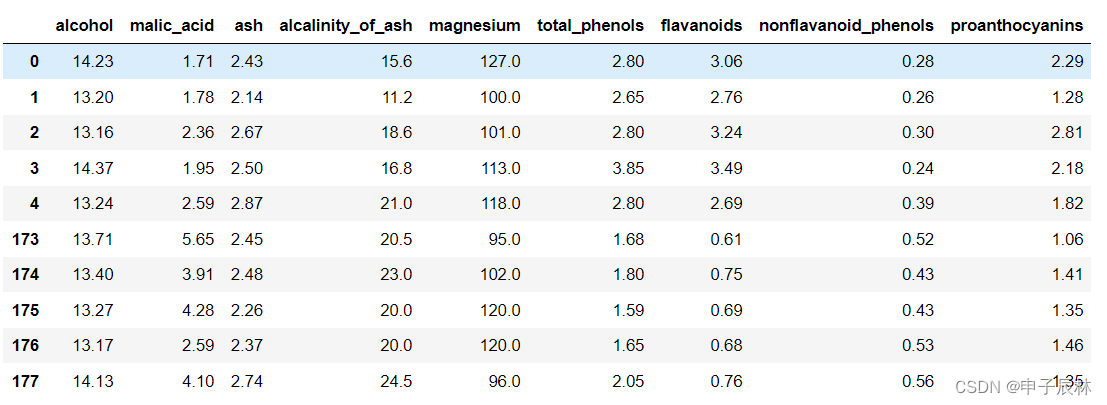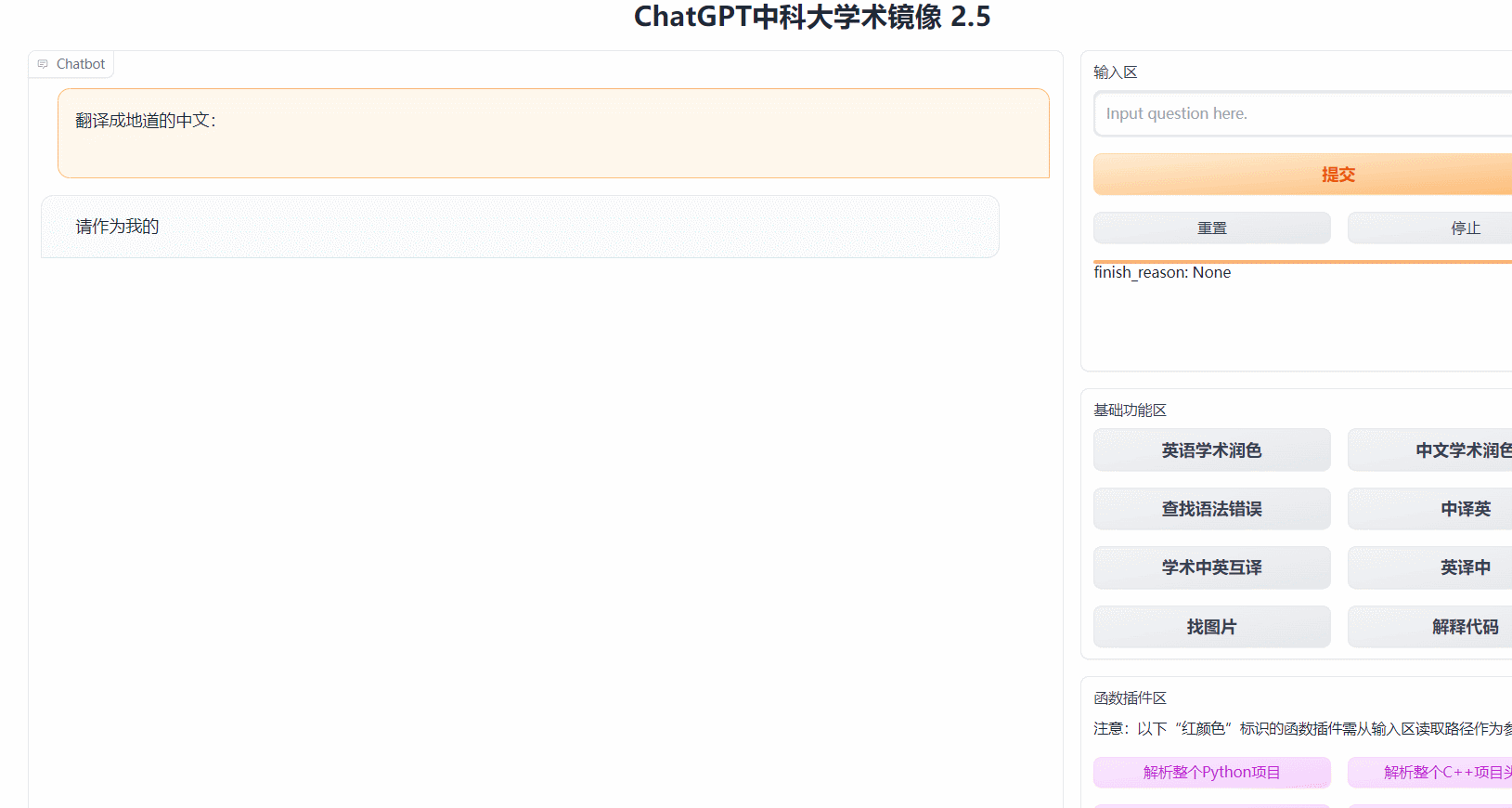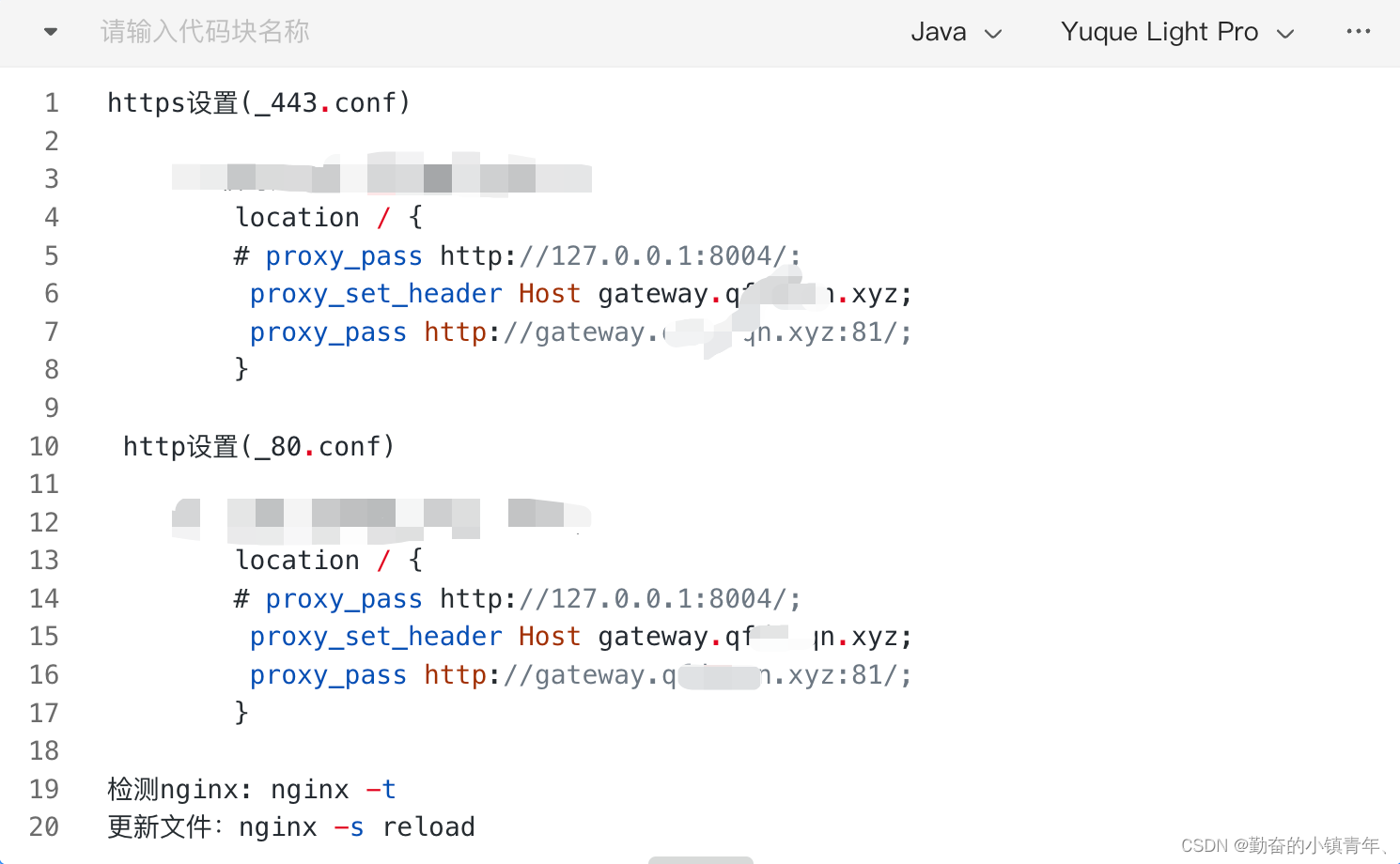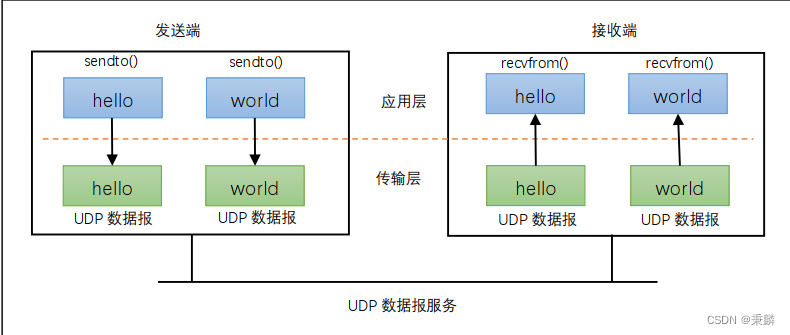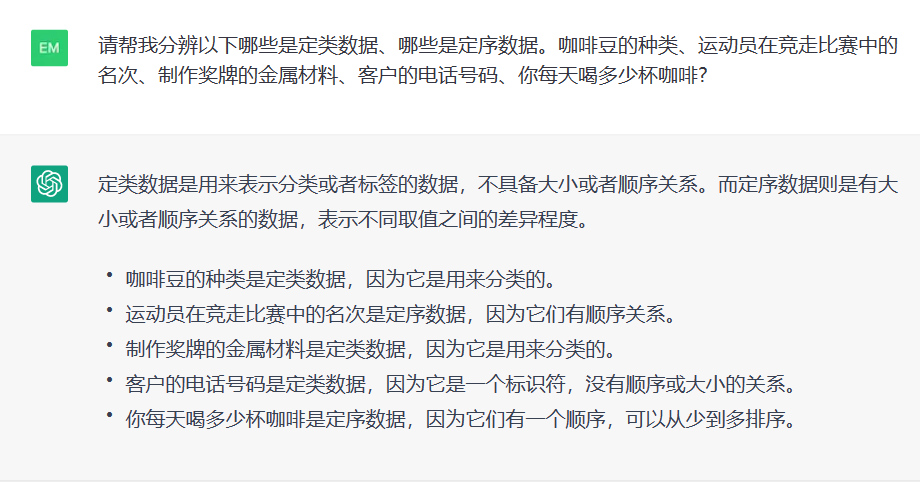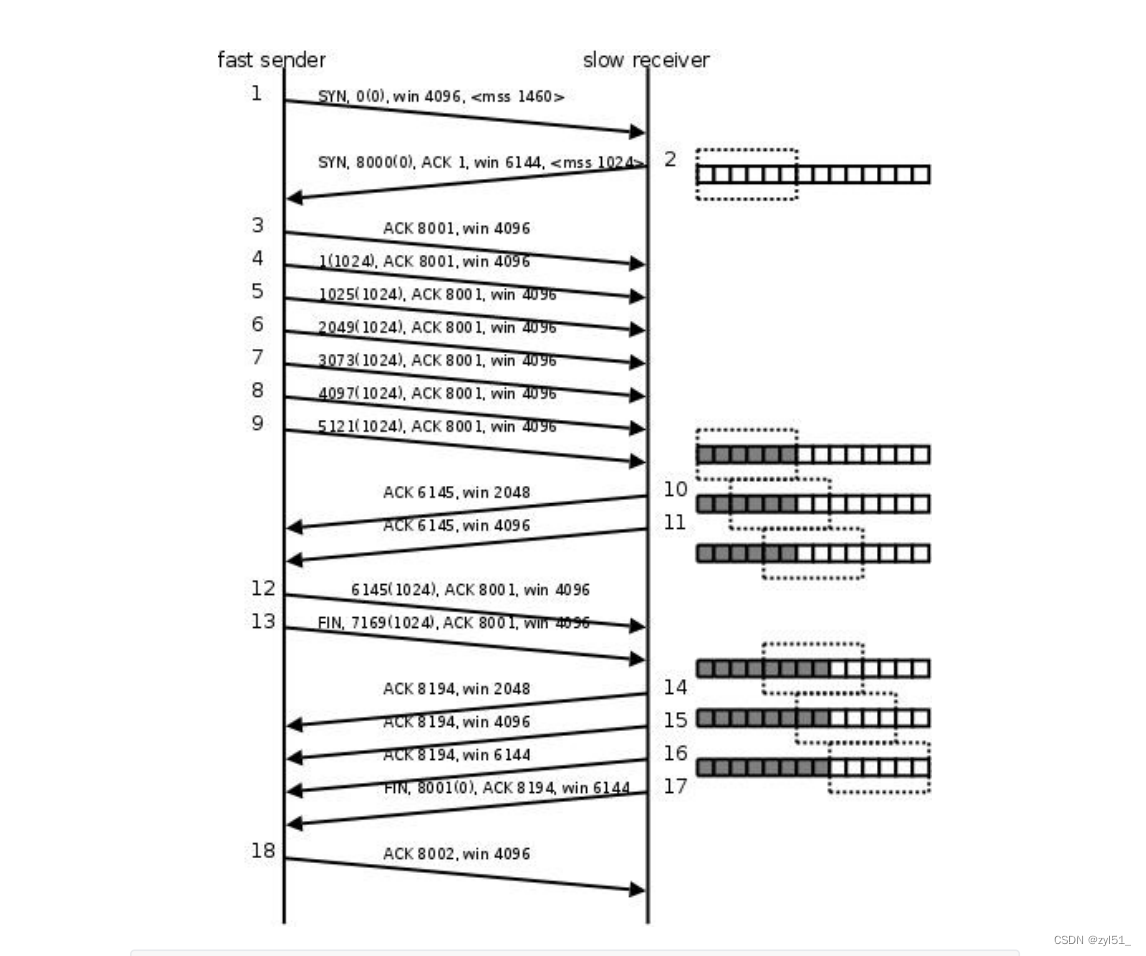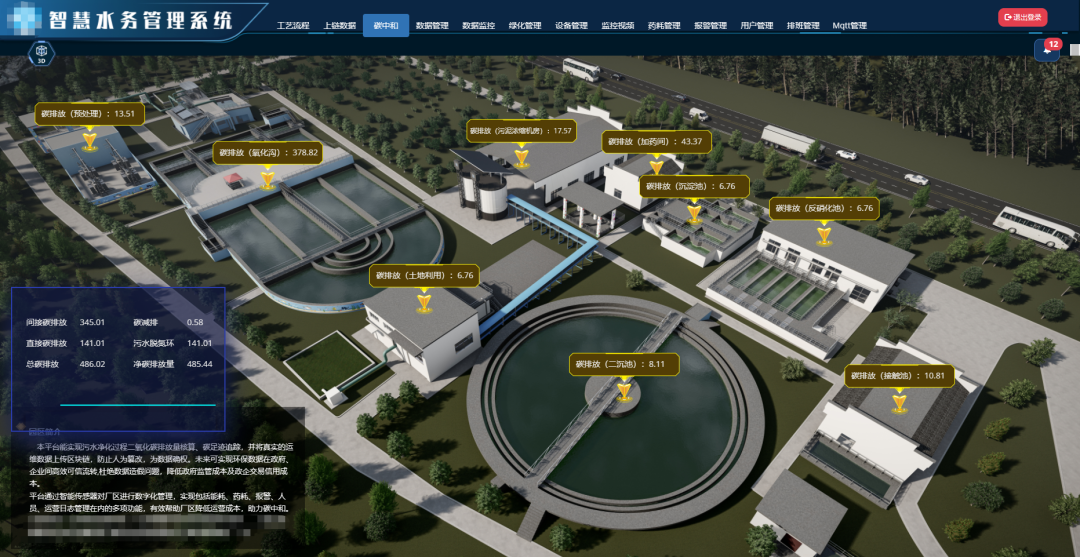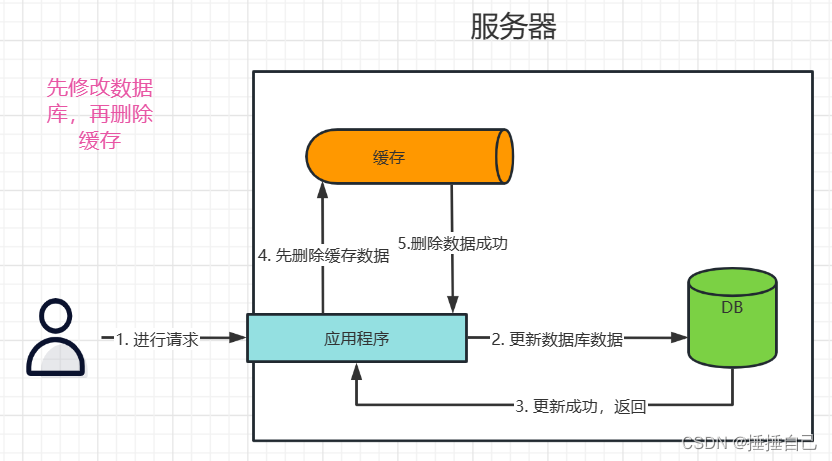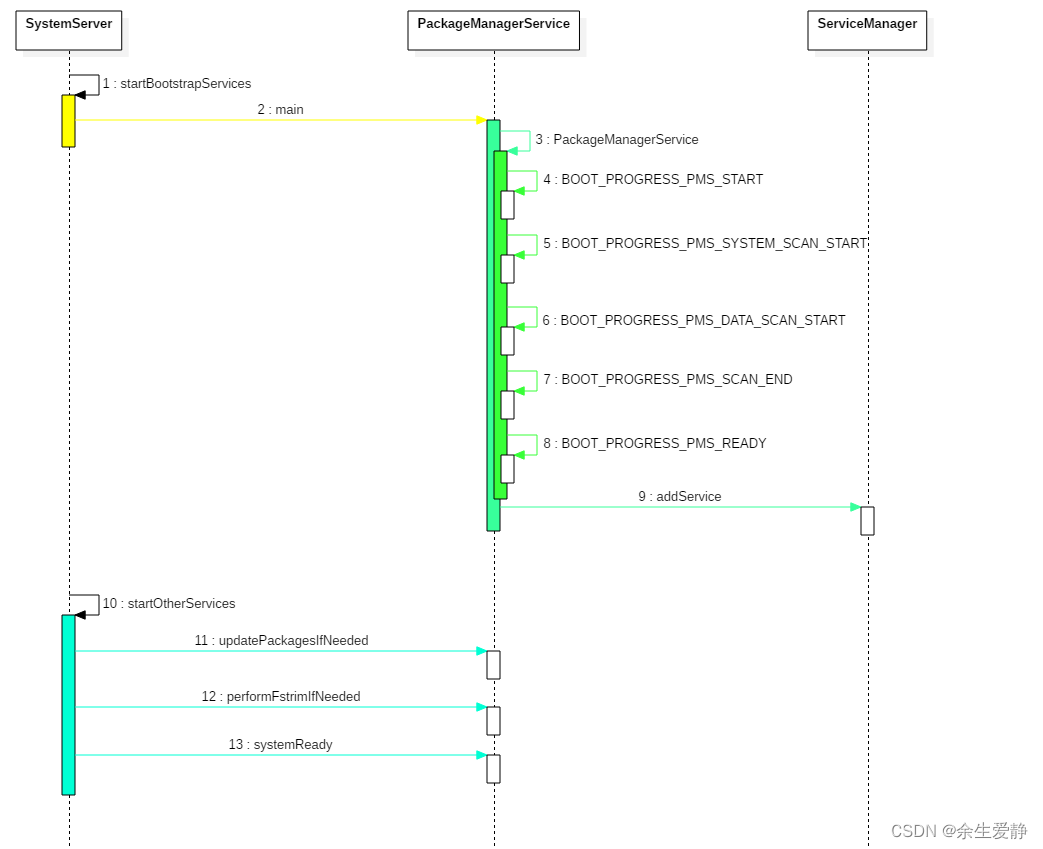
一、概述
Android系统启动过程中,会启动一个包管理服务PackageManagerService(PKMS),这个服务主要负责扫描系统中指定目录,找出里面以apk结尾的文件,通过对这些文件进行解析,得到应用程序的所有信息并完成应用程序的安装过程。
二、SystemServer中的PKMS
android-10.0.0_r41\frameworks\base\services\java\com\android\server\SystemServer.java
SystemServer中的startBootstrapServices启动PKMS服务
// Start the package manager.
if (!mRuntimeRestart) {
MetricsLogger.histogram(null, "boot_package_manager_init_start",
(int) SystemClock.elapsedRealtime());
}
traceBeginAndSlog("StartPackageManagerService");
try {
Watchdog.getInstance().pauseWatchingCurrentThread("packagemanagermain");
mPackageManagerService = PackageManagerService.main(mSystemContext, installer,
mFactoryTestMode != FactoryTest.FACTORY_TEST_OFF, mOnlyCore);
} finally {
Watchdog.getInstance().resumeWatchingCurrentThread("packagemanagermain");
}
mFirstBoot = mPackageManagerService.isFirstBoot();
mPackageManager = mSystemContext.getPackageManager();
traceEnd();
三、PKMS中的main方法
android-10.0.0_r41\frameworks\base\services\core\java\com\android\server\pm\PackageManagerService.java
public static PackageManagerService main(Context context, Installer installer,
boolean factoryTest, boolean onlyCore) {
// Self-check for initial settings.
PackageManagerServiceCompilerMapping.checkProperties();
PackageManagerService m = new PackageManagerService(context, installer,
factoryTest, onlyCore);
m.enableSystemUserPackages();
ServiceManager.addService("package", m);
final PackageManagerNative pmn = m.new PackageManagerNative();
ServiceManager.addService("package_native", pmn);
return m;
}
- 调用构造方法,创建PackageManagerService对象
- 调用ServiceManager的addService方法,添加PKMS服务
四、PKMS的构造方法
public PackageManagerService(Context context, Installer installer,
boolean factoryTest, boolean onlyCore) {
LockGuard.installLock(mPackages, LockGuard.INDEX_PACKAGES);
Trace.traceBegin(TRACE_TAG_PACKAGE_MANAGER, "create package manager");
//前期准备
EventLog.writeEvent(EventLogTags.BOOT_PROGRESS_PMS_START,SystemClock.uptimeMillis());
if (mSdkVersion <= 0) {
Slog.w(TAG, "**** ro.build.version.sdk not set!");
}
mContext = context;
mFactoryTest = factoryTest;
mOnlyCore = onlyCore;
mMetrics = new DisplayMetrics();
mInstaller = installer;
// Create sub-components that provide services / data. Order here is important.
synchronized (mInstallLock) {
synchronized (mPackages) {
// Expose private service for system components to use.
LocalServices.addService(
PackageManagerInternal.class, new PackageManagerInternalImpl());
sUserManager = new UserManagerService(context, this,
new UserDataPreparer(mInstaller, mInstallLock, mContext, mOnlyCore), mPackages);
mComponentResolver = new ComponentResolver(sUserManager,
LocalServices.getService(PackageManagerInternal.class),
mPackages);
mPermissionManager = PermissionManagerService.create(context,
mPackages /*externalLock*/);
mDefaultPermissionPolicy = mPermissionManager.getDefaultPermissionGrantPolicy();
mSettings = new Settings(Environment.getDataDirectory(),
mPermissionManager.getPermissionSettings(), mPackages);
}
}
mSettings.addSharedUserLPw("android.uid.system", Process.SYSTEM_UID,
ApplicationInfo.FLAG_SYSTEM, ApplicationInfo.PRIVATE_FLAG_PRIVILEGED);
mSettings.addSharedUserLPw("android.uid.phone", RADIO_UID,
ApplicationInfo.FLAG_SYSTEM, ApplicationInfo.PRIVATE_FLAG_PRIVILEGED);
mSettings.addSharedUserLPw("android.uid.log", LOG_UID,
ApplicationInfo.FLAG_SYSTEM, ApplicationInfo.PRIVATE_FLAG_PRIVILEGED);
mSettings.addSharedUserLPw("android.uid.nfc", NFC_UID,
ApplicationInfo.FLAG_SYSTEM, ApplicationInfo.PRIVATE_FLAG_PRIVILEGED);
mSettings.addSharedUserLPw("android.uid.bluetooth", BLUETOOTH_UID,
ApplicationInfo.FLAG_SYSTEM, ApplicationInfo.PRIVATE_FLAG_PRIVILEGED);
mSettings.addSharedUserLPw("android.uid.shell", SHELL_UID,
ApplicationInfo.FLAG_SYSTEM, ApplicationInfo.PRIVATE_FLAG_PRIVILEGED);
mSettings.addSharedUserLPw("android.uid.se", SE_UID,
ApplicationInfo.FLAG_SYSTEM, ApplicationInfo.PRIVATE_FLAG_PRIVILEGED);
mSettings.addSharedUserLPw("android.uid.networkstack", NETWORKSTACK_UID,
ApplicationInfo.FLAG_SYSTEM, ApplicationInfo.PRIVATE_FLAG_PRIVILEGED);
String separateProcesses = SystemProperties.get("debug.separate_processes");
if (separateProcesses != null && separateProcesses.length() > 0) {
if ("*".equals(separateProcesses)) {
mDefParseFlags = PackageParser.PARSE_IGNORE_PROCESSES;
mSeparateProcesses = null;
Slog.w(TAG, "Running with debug.separate_processes: * (ALL)");
} else {
mDefParseFlags = 0;
mSeparateProcesses = separateProcesses.split(",");
Slog.w(TAG, "Running with debug.separate_processes: "
+ separateProcesses);
}
} else {
mDefParseFlags = 0;
mSeparateProcesses = null;
}
mPackageDexOptimizer = new PackageDexOptimizer(installer, mInstallLock, context,
"*dexopt*");
mDexManager = new DexManager(mContext, this, mPackageDexOptimizer, installer, mInstallLock);
mArtManagerService = new ArtManagerService(mContext, this, installer, mInstallLock);
mMoveCallbacks = new MoveCallbacks(FgThread.get().getLooper());
mViewCompiler = new ViewCompiler(mInstallLock, mInstaller);
mOnPermissionChangeListeners = new OnPermissionChangeListeners(
FgThread.get().getLooper());
getDefaultDisplayMetrics(context, mMetrics);
Trace.traceBegin(TRACE_TAG_PACKAGE_MANAGER, "get system config");
SystemConfig systemConfig = SystemConfig.getInstance();
mAvailableFeatures = systemConfig.getAvailableFeatures();
Trace.traceEnd(TRACE_TAG_PACKAGE_MANAGER);
mProtectedPackages = new ProtectedPackages(mContext);
mApexManager = new ApexManager(context);
synchronized (mInstallLock) {
// writer
synchronized (mPackages) {
mHandlerThread = new ServiceThread(TAG,
Process.THREAD_PRIORITY_BACKGROUND, true /*allowIo*/);
mHandlerThread.start();
mHandler = new PackageHandler(mHandlerThread.getLooper());
mProcessLoggingHandler = new ProcessLoggingHandler();
Watchdog.getInstance().addThread(mHandler, WATCHDOG_TIMEOUT);
mInstantAppRegistry = new InstantAppRegistry(this);
ArrayMap<String, SystemConfig.SharedLibraryEntry> libConfig
= systemConfig.getSharedLibraries();
final int builtInLibCount = libConfig.size();
for (int i = 0; i < builtInLibCount; i++) {
String name = libConfig.keyAt(i);
SystemConfig.SharedLibraryEntry entry = libConfig.valueAt(i);
addBuiltInSharedLibraryLocked(entry.filename, name);
}
// Now that we have added all the libraries, iterate again to add dependency
// information IFF their dependencies are added.
long undefinedVersion = SharedLibraryInfo.VERSION_UNDEFINED;
for (int i = 0; i < builtInLibCount; i++) {
String name = libConfig.keyAt(i);
SystemConfig.SharedLibraryEntry entry = libConfig.valueAt(i);
final int dependencyCount = entry.dependencies.length;
for (int j = 0; j < dependencyCount; j++) {
final SharedLibraryInfo dependency =
getSharedLibraryInfoLPr(entry.dependencies[j], undefinedVersion);
if (dependency != null) {
getSharedLibraryInfoLPr(name, undefinedVersion).addDependency(dependency);
}
}
}
SELinuxMMAC.readInstallPolicy();
Trace.traceBegin(TRACE_TAG_PACKAGE_MANAGER, "loadFallbacks");
FallbackCategoryProvider.loadFallbacks();
Trace.traceEnd(TRACE_TAG_PACKAGE_MANAGER);
Trace.traceBegin(TRACE_TAG_PACKAGE_MANAGER, "read user settings");
mFirstBoot = !mSettings.readLPw(sUserManager.getUsers(false));
Trace.traceEnd(TRACE_TAG_PACKAGE_MANAGER);
// Clean up orphaned packages for which the code path doesn't exist
// and they are an update to a system app - caused by bug/32321269
final int packageSettingCount = mSettings.mPackages.size();
for (int i = packageSettingCount - 1; i >= 0; i--) {
PackageSetting ps = mSettings.mPackages.valueAt(i);
if (!isExternal(ps) && (ps.codePath == null || !ps.codePath.exists())
&& mSettings.getDisabledSystemPkgLPr(ps.name) != null) {
mSettings.mPackages.removeAt(i);
mSettings.enableSystemPackageLPw(ps.name);
}
}
if (!mOnlyCore && mFirstBoot) {
requestCopyPreoptedFiles();
}
String customResolverActivityName = Resources.getSystem().getString(
R.string.config_customResolverActivity);
if (!TextUtils.isEmpty(customResolverActivityName)) {
mCustomResolverComponentName = ComponentName.unflattenFromString(
customResolverActivityName);
}
//系统扫描阶段
long startTime = SystemClock.uptimeMillis();
EventLog.writeEvent(EventLogTags.BOOT_PROGRESS_PMS_SYSTEM_SCAN_START, startTime);
final String bootClassPath = System.getenv("BOOTCLASSPATH");
final String systemServerClassPath = System.getenv("SYSTEMSERVERCLASSPATH");
if (bootClassPath == null) {
Slog.w(TAG, "No BOOTCLASSPATH found!");
}
if (systemServerClassPath == null) {
Slog.w(TAG, "No SYSTEMSERVERCLASSPATH found!");
}
File frameworkDir = new File(Environment.getRootDirectory(), "framework");
final VersionInfo ver = mSettings.getInternalVersion();
mIsUpgrade = !Build.FINGERPRINT.equals(ver.fingerprint);
if (mIsUpgrade) {
logCriticalInfo(Log.INFO,
"Upgrading from " + ver.fingerprint + " to " + Build.FINGERPRINT);
}
// when upgrading from pre-M, promote system app permissions from install to runtime
mPromoteSystemApps =
mIsUpgrade && ver.sdkVersion <= Build.VERSION_CODES.LOLLIPOP_MR1;
// When upgrading from pre-N, we need to handle package extraction like first boot,
// as there is no profiling data available.
mIsPreNUpgrade = mIsUpgrade && ver.sdkVersion < Build.VERSION_CODES.N;
mIsPreNMR1Upgrade = mIsUpgrade && ver.sdkVersion < Build.VERSION_CODES.N_MR1;
mIsPreQUpgrade = mIsUpgrade && ver.sdkVersion < Build.VERSION_CODES.Q;
int preUpgradeSdkVersion = ver.sdkVersion;
// save off the names of pre-existing system packages prior to scanning; we don't
// want to automatically grant runtime permissions for new system apps
if (mPromoteSystemApps) {
Iterator<PackageSetting> pkgSettingIter = mSettings.mPackages.values().iterator();
while (pkgSettingIter.hasNext()) {
PackageSetting ps = pkgSettingIter.next();
if (isSystemApp(ps)) {
mExistingSystemPackages.add(ps.name);
}
}
}
mCacheDir = preparePackageParserCache();
// Set flag to monitor and not change apk file paths when
// scanning install directories.
int scanFlags = SCAN_BOOTING | SCAN_INITIAL;
if (mIsUpgrade || mFirstBoot) {
scanFlags = scanFlags | SCAN_FIRST_BOOT_OR_UPGRADE;
}
// Collect vendor/product/product_services overlay packages. (Do this before scanning
// any apps.)
// For security and version matching reason, only consider overlay packages if they
// reside in the right directory.
scanDirTracedLI(new File(VENDOR_OVERLAY_DIR),
mDefParseFlags
| PackageParser.PARSE_IS_SYSTEM_DIR,
scanFlags
| SCAN_AS_SYSTEM
| SCAN_AS_VENDOR,
0);
scanDirTracedLI(new File(PRODUCT_OVERLAY_DIR),
mDefParseFlags
| PackageParser.PARSE_IS_SYSTEM_DIR,
scanFlags
| SCAN_AS_SYSTEM
| SCAN_AS_PRODUCT,
0);
scanDirTracedLI(new File(PRODUCT_SERVICES_OVERLAY_DIR),
mDefParseFlags
| PackageParser.PARSE_IS_SYSTEM_DIR,
scanFlags
| SCAN_AS_SYSTEM
| SCAN_AS_PRODUCT_SERVICES,
0);
scanDirTracedLI(new File(ODM_OVERLAY_DIR),
mDefParseFlags
| PackageParser.PARSE_IS_SYSTEM_DIR,
scanFlags
| SCAN_AS_SYSTEM
| SCAN_AS_ODM,
0);
scanDirTracedLI(new File(OEM_OVERLAY_DIR),
mDefParseFlags
| PackageParser.PARSE_IS_SYSTEM_DIR,
scanFlags
| SCAN_AS_SYSTEM
| SCAN_AS_OEM,
0);
mParallelPackageParserCallback.findStaticOverlayPackages();
// Find base frameworks (resource packages without code).
scanDirTracedLI(frameworkDir,
mDefParseFlags
| PackageParser.PARSE_IS_SYSTEM_DIR,
scanFlags
| SCAN_NO_DEX
| SCAN_AS_SYSTEM
| SCAN_AS_PRIVILEGED,
0);
if (!mPackages.containsKey("android")) {
throw new IllegalStateException(
"Failed to load frameworks package; check log for warnings");
}
// Collect privileged system packages.
final File privilegedAppDir = new File(Environment.getRootDirectory(), "priv-app");
scanDirTracedLI(privilegedAppDir,
mDefParseFlags
| PackageParser.PARSE_IS_SYSTEM_DIR,
scanFlags
| SCAN_AS_SYSTEM
| SCAN_AS_PRIVILEGED,
0);
// Collect ordinary system packages.
final File systemAppDir = new File(Environment.getRootDirectory(), "app");
scanDirTracedLI(systemAppDir,
mDefParseFlags
| PackageParser.PARSE_IS_SYSTEM_DIR,
scanFlags
| SCAN_AS_SYSTEM,
0);
// Collect privileged vendor packages.
File privilegedVendorAppDir = new File(Environment.getVendorDirectory(), "priv-app");
try {
privilegedVendorAppDir = privilegedVendorAppDir.getCanonicalFile();
} catch (IOException e) {
// failed to look up canonical path, continue with original one
}
scanDirTracedLI(privilegedVendorAppDir,
mDefParseFlags
| PackageParser.PARSE_IS_SYSTEM_DIR,
scanFlags
| SCAN_AS_SYSTEM
| SCAN_AS_VENDOR
| SCAN_AS_PRIVILEGED,
0);
// Collect ordinary vendor packages.
File vendorAppDir = new File(Environment.getVendorDirectory(), "app");
try {
vendorAppDir = vendorAppDir.getCanonicalFile();
} catch (IOException e) {
// failed to look up canonical path, continue with original one
}
scanDirTracedLI(vendorAppDir,
mDefParseFlags
| PackageParser.PARSE_IS_SYSTEM_DIR,
scanFlags
| SCAN_AS_SYSTEM
| SCAN_AS_VENDOR,
0);
// Collect privileged odm packages. /odm is another vendor partition
// other than /vendor.
File privilegedOdmAppDir = new File(Environment.getOdmDirectory(),
"priv-app");
try {
privilegedOdmAppDir = privilegedOdmAppDir.getCanonicalFile();
} catch (IOException e) {
// failed to look up canonical path, continue with original one
}
scanDirTracedLI(privilegedOdmAppDir,
mDefParseFlags
| PackageParser.PARSE_IS_SYSTEM_DIR,
scanFlags
| SCAN_AS_SYSTEM
| SCAN_AS_VENDOR
| SCAN_AS_PRIVILEGED,
0);
// Collect ordinary odm packages. /odm is another vendor partition
// other than /vendor.
File odmAppDir = new File(Environment.getOdmDirectory(), "app");
try {
odmAppDir = odmAppDir.getCanonicalFile();
} catch (IOException e) {
// failed to look up canonical path, continue with original one
}
scanDirTracedLI(odmAppDir,
mDefParseFlags
| PackageParser.PARSE_IS_SYSTEM_DIR,
scanFlags
| SCAN_AS_SYSTEM
| SCAN_AS_VENDOR,
0);
// Collect all OEM packages.
final File oemAppDir = new File(Environment.getOemDirectory(), "app");
scanDirTracedLI(oemAppDir,
mDefParseFlags
| PackageParser.PARSE_IS_SYSTEM_DIR,
scanFlags
| SCAN_AS_SYSTEM
| SCAN_AS_OEM,
0);
// Collected privileged /product packages.
File privilegedProductAppDir = new File(Environment.getProductDirectory(), "priv-app");
try {
privilegedProductAppDir = privilegedProductAppDir.getCanonicalFile();
} catch (IOException e) {
// failed to look up canonical path, continue with original one
}
scanDirTracedLI(privilegedProductAppDir,
mDefParseFlags
| PackageParser.PARSE_IS_SYSTEM_DIR,
scanFlags
| SCAN_AS_SYSTEM
| SCAN_AS_PRODUCT
| SCAN_AS_PRIVILEGED,
0);
// Collect ordinary /product packages.
File productAppDir = new File(Environment.getProductDirectory(), "app");
try {
productAppDir = productAppDir.getCanonicalFile();
} catch (IOException e) {
// failed to look up canonical path, continue with original one
}
scanDirTracedLI(productAppDir,
mDefParseFlags
| PackageParser.PARSE_IS_SYSTEM_DIR,
scanFlags
| SCAN_AS_SYSTEM
| SCAN_AS_PRODUCT,
0);
// Collected privileged /product_services packages.
File privilegedProductServicesAppDir =
new File(Environment.getProductServicesDirectory(), "priv-app");
try {
privilegedProductServicesAppDir =
privilegedProductServicesAppDir.getCanonicalFile();
} catch (IOException e) {
// failed to look up canonical path, continue with original one
}
scanDirTracedLI(privilegedProductServicesAppDir,
mDefParseFlags
| PackageParser.PARSE_IS_SYSTEM_DIR,
scanFlags
| SCAN_AS_SYSTEM
| SCAN_AS_PRODUCT_SERVICES
| SCAN_AS_PRIVILEGED,
0);
// Collect ordinary /product_services packages.
File productServicesAppDir = new File(Environment.getProductServicesDirectory(), "app");
try {
productServicesAppDir = productServicesAppDir.getCanonicalFile();
} catch (IOException e) {
// failed to look up canonical path, continue with original one
}
scanDirTracedLI(productServicesAppDir,
mDefParseFlags
| PackageParser.PARSE_IS_SYSTEM_DIR,
scanFlags
| SCAN_AS_SYSTEM
| SCAN_AS_PRODUCT_SERVICES,
0);
// Prune any system packages that no longer exist.
final List<String> possiblyDeletedUpdatedSystemApps = new ArrayList<>();
// Stub packages must either be replaced with full versions in the /data
// partition or be disabled.
final List<String> stubSystemApps = new ArrayList<>();
if (!mOnlyCore) {
// do this first before mucking with mPackages for the "expecting better" case
final Iterator<PackageParser.Package> pkgIterator = mPackages.values().iterator();
while (pkgIterator.hasNext()) {
final PackageParser.Package pkg = pkgIterator.next();
if (pkg.isStub) {
stubSystemApps.add(pkg.packageName);
}
}
final Iterator<PackageSetting> psit = mSettings.mPackages.values().iterator();
while (psit.hasNext()) {
PackageSetting ps = psit.next();
/*
* If this is not a system app, it can't be a
* disable system app.
*/
if ((ps.pkgFlags & ApplicationInfo.FLAG_SYSTEM) == 0) {
continue;
}
/*
* If the package is scanned, it's not erased.
*/
final PackageParser.Package scannedPkg = mPackages.get(ps.name);
if (scannedPkg != null) {
/*
* If the system app is both scanned and in the
* disabled packages list, then it must have been
* added via OTA. Remove it from the currently
* scanned package so the previously user-installed
* application can be scanned.
*/
if (mSettings.isDisabledSystemPackageLPr(ps.name)) {
logCriticalInfo(Log.WARN,
"Expecting better updated system app for " + ps.name
+ "; removing system app. Last known"
+ " codePath=" + ps.codePathString
+ ", versionCode=" + ps.versionCode
+ "; scanned versionCode=" + scannedPkg.getLongVersionCode());
removePackageLI(scannedPkg, true);
mExpectingBetter.put(ps.name, ps.codePath);
}
continue;
}
if (!mSettings.isDisabledSystemPackageLPr(ps.name)) {
psit.remove();
logCriticalInfo(Log.WARN, "System package " + ps.name
+ " no longer exists; it's data will be wiped");
// Actual deletion of code and data will be handled by later
// reconciliation step
} else {
// we still have a disabled system package, but, it still might have
// been removed. check the code path still exists and check there's
// still a package. the latter can happen if an OTA keeps the same
// code path, but, changes the package name.
final PackageSetting disabledPs =
mSettings.getDisabledSystemPkgLPr(ps.name);
if (disabledPs.codePath == null || !disabledPs.codePath.exists()
|| disabledPs.pkg == null) {
possiblyDeletedUpdatedSystemApps.add(ps.name);
} else {
// We're expecting that the system app should remain disabled, but add
// it to expecting better to recover in case the data version cannot
// be scanned.
mExpectingBetter.put(disabledPs.name, disabledPs.codePath);
}
}
}
}
//delete tmp files
deleteTempPackageFiles();
final int cachedSystemApps = PackageParser.sCachedPackageReadCount.get();
// Remove any shared userIDs that have no associated packages
mSettings.pruneSharedUsersLPw();
final long systemScanTime = SystemClock.uptimeMillis() - startTime;
final int systemPackagesCount = mPackages.size();
Slog.i(TAG, "Finished scanning system apps. Time: " + systemScanTime
+ " ms, packageCount: " + systemPackagesCount
+ " , timePerPackage: "
+ (systemPackagesCount == 0 ? 0 : systemScanTime / systemPackagesCount)
+ " , cached: " + cachedSystemApps);
if (mIsUpgrade && systemPackagesCount > 0) {
MetricsLogger.histogram(null, "ota_package_manager_system_app_avg_scan_time",
((int) systemScanTime) / systemPackagesCount);
}
if (!mOnlyCore) {
//数据扫描阶段
EventLog.writeEvent(EventLogTags.BOOT_PROGRESS_PMS_DATA_SCAN_START,SystemClock.uptimeMillis());
scanDirTracedLI(sAppInstallDir, 0, scanFlags | SCAN_REQUIRE_KNOWN, 0);
// Remove disable package settings for updated system apps that were
// removed via an OTA. If the update is no longer present, remove the
// app completely. Otherwise, revoke their system privileges.
for (int i = possiblyDeletedUpdatedSystemApps.size() - 1; i >= 0; --i) {
final String packageName = possiblyDeletedUpdatedSystemApps.get(i);
final PackageParser.Package pkg = mPackages.get(packageName);
final String msg;
// remove from the disabled system list; do this first so any future
// scans of this package are performed without this state
mSettings.removeDisabledSystemPackageLPw(packageName);
if (pkg == null) {
// should have found an update, but, we didn't; remove everything
msg = "Updated system package " + packageName
+ " no longer exists; removing its data";
// Actual deletion of code and data will be handled by later
// reconciliation step
} else {
// found an update; revoke system privileges
msg = "Updated system package " + packageName
+ " no longer exists; rescanning package on data";
// NOTE: We don't do anything special if a stub is removed from the
// system image. But, if we were [like removing the uncompressed
// version from the /data partition], this is where it'd be done.
// remove the package from the system and re-scan it without any
// special privileges
removePackageLI(pkg, true);
try {
final File codePath = new File(pkg.applicationInfo.getCodePath());
scanPackageTracedLI(codePath, 0, scanFlags, 0, null);
} catch (PackageManagerException e) {
Slog.e(TAG, "Failed to parse updated, ex-system package: "
+ e.getMessage());
}
}
// one final check. if we still have a package setting [ie. it was
// previously scanned and known to the system], but, we don't have
// a package [ie. there was an error scanning it from the /data
// partition], completely remove the package data.
final PackageSetting ps = mSettings.mPackages.get(packageName);
if (ps != null && mPackages.get(packageName) == null) {
removePackageDataLIF(ps, null, null, 0, false);
}
logCriticalInfo(Log.WARN, msg);
}
/*
* Make sure all system apps that we expected to appear on
* the userdata partition actually showed up. If they never
* appeared, crawl back and revive the system version.
*/
for (int i = 0; i < mExpectingBetter.size(); i++) {
final String packageName = mExpectingBetter.keyAt(i);
if (!mPackages.containsKey(packageName)) {
final File scanFile = mExpectingBetter.valueAt(i);
logCriticalInfo(Log.WARN, "Expected better " + packageName
+ " but never showed up; reverting to system");
final @ParseFlags int reparseFlags;
final @ScanFlags int rescanFlags;
if (FileUtils.contains(privilegedAppDir, scanFile)) {
reparseFlags =
mDefParseFlags |
PackageParser.PARSE_IS_SYSTEM_DIR;
rescanFlags =
scanFlags
| SCAN_AS_SYSTEM
| SCAN_AS_PRIVILEGED;
} else if (FileUtils.contains(systemAppDir, scanFile)) {
reparseFlags =
mDefParseFlags |
PackageParser.PARSE_IS_SYSTEM_DIR;
rescanFlags =
scanFlags
| SCAN_AS_SYSTEM;
} else if (FileUtils.contains(privilegedVendorAppDir, scanFile)
|| FileUtils.contains(privilegedOdmAppDir, scanFile)) {
reparseFlags =
mDefParseFlags |
PackageParser.PARSE_IS_SYSTEM_DIR;
rescanFlags =
scanFlags
| SCAN_AS_SYSTEM
| SCAN_AS_VENDOR
| SCAN_AS_PRIVILEGED;
} else if (FileUtils.contains(vendorAppDir, scanFile)
|| FileUtils.contains(odmAppDir, scanFile)) {
reparseFlags =
mDefParseFlags |
PackageParser.PARSE_IS_SYSTEM_DIR;
rescanFlags =
scanFlags
| SCAN_AS_SYSTEM
| SCAN_AS_VENDOR;
} else if (FileUtils.contains(oemAppDir, scanFile)) {
reparseFlags =
mDefParseFlags |
PackageParser.PARSE_IS_SYSTEM_DIR;
rescanFlags =
scanFlags
| SCAN_AS_SYSTEM
| SCAN_AS_OEM;
} else if (FileUtils.contains(privilegedProductAppDir, scanFile)) {
reparseFlags =
mDefParseFlags |
PackageParser.PARSE_IS_SYSTEM_DIR;
rescanFlags =
scanFlags
| SCAN_AS_SYSTEM
| SCAN_AS_PRODUCT
| SCAN_AS_PRIVILEGED;
} else if (FileUtils.contains(productAppDir, scanFile)) {
reparseFlags =
mDefParseFlags |
PackageParser.PARSE_IS_SYSTEM_DIR;
rescanFlags =
scanFlags
| SCAN_AS_SYSTEM
| SCAN_AS_PRODUCT;
} else if (FileUtils.contains(privilegedProductServicesAppDir, scanFile)) {
reparseFlags =
mDefParseFlags |
PackageParser.PARSE_IS_SYSTEM_DIR;
rescanFlags =
scanFlags
| SCAN_AS_SYSTEM
| SCAN_AS_PRODUCT_SERVICES
| SCAN_AS_PRIVILEGED;
} else if (FileUtils.contains(productServicesAppDir, scanFile)) {
reparseFlags =
mDefParseFlags |
PackageParser.PARSE_IS_SYSTEM_DIR;
rescanFlags =
scanFlags
| SCAN_AS_SYSTEM
| SCAN_AS_PRODUCT_SERVICES;
} else {
Slog.e(TAG, "Ignoring unexpected fallback path " + scanFile);
continue;
}
mSettings.enableSystemPackageLPw(packageName);
try {
scanPackageTracedLI(scanFile, reparseFlags, rescanFlags, 0, null);
} catch (PackageManagerException e) {
Slog.e(TAG, "Failed to parse original system package: "
+ e.getMessage());
}
}
}
// Uncompress and install any stubbed system applications.
// This must be done last to ensure all stubs are replaced or disabled.
installSystemStubPackages(stubSystemApps, scanFlags);
final int cachedNonSystemApps = PackageParser.sCachedPackageReadCount.get()
- cachedSystemApps;
final long dataScanTime = SystemClock.uptimeMillis() - systemScanTime - startTime;
final int dataPackagesCount = mPackages.size() - systemPackagesCount;
Slog.i(TAG, "Finished scanning non-system apps. Time: " + dataScanTime
+ " ms, packageCount: " + dataPackagesCount
+ " , timePerPackage: "
+ (dataPackagesCount == 0 ? 0 : dataScanTime / dataPackagesCount)
+ " , cached: " + cachedNonSystemApps);
if (mIsUpgrade && dataPackagesCount > 0) {
MetricsLogger.histogram(null, "ota_package_manager_data_app_avg_scan_time",
((int) dataScanTime) / dataPackagesCount);
}
}
mExpectingBetter.clear();
// Resolve the storage manager.
mStorageManagerPackage = getStorageManagerPackageName();
// Resolve protected action filters. Only the setup wizard is allowed to
// have a high priority filter for these actions.
mSetupWizardPackage = getSetupWizardPackageName();
mComponentResolver.fixProtectedFilterPriorities();
mSystemTextClassifierPackage = getSystemTextClassifierPackageName();
mWellbeingPackage = getWellbeingPackageName();
mDocumenterPackage = getDocumenterPackageName();
mConfiguratorPackage = getDeviceConfiguratorPackageName();
mAppPredictionServicePackage = getAppPredictionServicePackageName();
mIncidentReportApproverPackage = getIncidentReportApproverPackageName();
// Now that we know all of the shared libraries, update all clients to have
// the correct library paths.
updateAllSharedLibrariesLocked(null, Collections.unmodifiableMap(mPackages));
for (SharedUserSetting setting : mSettings.getAllSharedUsersLPw()) {
// NOTE: We ignore potential failures here during a system scan (like
// the rest of the commands above) because there's precious little we
// can do about it. A settings error is reported, though.
final List<String> changedAbiCodePath =
adjustCpuAbisForSharedUserLPw(setting.packages, null /*scannedPackage*/);
if (changedAbiCodePath != null && changedAbiCodePath.size() > 0) {
for (int i = changedAbiCodePath.size() - 1; i >= 0; --i) {
final String codePathString = changedAbiCodePath.get(i);
try {
mInstaller.rmdex(codePathString,
getDexCodeInstructionSet(getPreferredInstructionSet()));
} catch (InstallerException ignored) {
}
}
}
// Adjust seInfo to ensure apps which share a sharedUserId are placed in the same
// SELinux domain.
setting.fixSeInfoLocked();
}
// Now that we know all the packages we are keeping,
// read and update their last usage times.
mPackageUsage.read(mPackages);
mCompilerStats.read();
//PKMS扫描工作完成
EventLog.writeEvent(EventLogTags.BOOT_PROGRESS_PMS_SCAN_END,SystemClock.uptimeMillis());
Slog.i(TAG, "Time to scan packages: "
+ ((SystemClock.uptimeMillis()-startTime)/1000f)
+ " seconds");
// If the platform SDK has changed since the last time we booted,
// we need to re-grant app permission to catch any new ones that
// appear. This is really a hack, and means that apps can in some
// cases get permissions that the user didn't initially explicitly
// allow... it would be nice to have some better way to handle
// this situation.
final boolean sdkUpdated = (ver.sdkVersion != mSdkVersion);
if (sdkUpdated) {
Slog.i(TAG, "Platform changed from " + ver.sdkVersion + " to "
+ mSdkVersion + "; regranting permissions for internal storage");
}
mPermissionManager.updateAllPermissions(
StorageManager.UUID_PRIVATE_INTERNAL, sdkUpdated, mPackages.values(),
mPermissionCallback);
ver.sdkVersion = mSdkVersion;
// If this is the first boot or an update from pre-M, and it is a normal
// boot, then we need to initialize the default preferred apps across
// all defined users.
if (!onlyCore && (mPromoteSystemApps || mFirstBoot)) {
for (UserInfo user : sUserManager.getUsers(true)) {
mSettings.applyDefaultPreferredAppsLPw(user.id);
primeDomainVerificationsLPw(user.id);
}
}
// Prepare storage for system user really early during boot,
// since core system apps like SettingsProvider and SystemUI
// can't wait for user to start
final int storageFlags;
if (StorageManager.isFileEncryptedNativeOrEmulated()) {
storageFlags = StorageManager.FLAG_STORAGE_DE;
} else {
storageFlags = StorageManager.FLAG_STORAGE_DE | StorageManager.FLAG_STORAGE_CE;
}
List<String> deferPackages = reconcileAppsDataLI(StorageManager.UUID_PRIVATE_INTERNAL,
UserHandle.USER_SYSTEM, storageFlags, true /* migrateAppData */,
true /* onlyCoreApps */);
mPrepareAppDataFuture = SystemServerInitThreadPool.get().submit(() -> {
TimingsTraceLog traceLog = new TimingsTraceLog("SystemServerTimingAsync",
Trace.TRACE_TAG_PACKAGE_MANAGER);
traceLog.traceBegin("AppDataFixup");
try {
mInstaller.fixupAppData(StorageManager.UUID_PRIVATE_INTERNAL,
StorageManager.FLAG_STORAGE_DE | StorageManager.FLAG_STORAGE_CE);
} catch (InstallerException e) {
Slog.w(TAG, "Trouble fixing GIDs", e);
}
traceLog.traceEnd();
traceLog.traceBegin("AppDataPrepare");
if (deferPackages == null || deferPackages.isEmpty()) {
return;
}
int count = 0;
for (String pkgName : deferPackages) {
PackageParser.Package pkg = null;
synchronized (mPackages) {
PackageSetting ps = mSettings.getPackageLPr(pkgName);
if (ps != null && ps.getInstalled(UserHandle.USER_SYSTEM)) {
pkg = ps.pkg;
}
}
if (pkg != null) {
synchronized (mInstallLock) {
prepareAppDataAndMigrateLIF(pkg, UserHandle.USER_SYSTEM, storageFlags,
true /* maybeMigrateAppData */);
}
count++;
}
}
traceLog.traceEnd();
Slog.i(TAG, "Deferred reconcileAppsData finished " + count + " packages");
}, "prepareAppData");
// If this is first boot after an OTA, and a normal boot, then
// we need to clear code cache directories.
// Note that we do *not* clear the application profiles. These remain valid
// across OTAs and are used to drive profile verification (post OTA) and
// profile compilation (without waiting to collect a fresh set of profiles).
if (mIsUpgrade && !onlyCore) {
Slog.i(TAG, "Build fingerprint changed; clearing code caches");
for (int i = 0; i < mSettings.mPackages.size(); i++) {
final PackageSetting ps = mSettings.mPackages.valueAt(i);
if (Objects.equals(StorageManager.UUID_PRIVATE_INTERNAL, ps.volumeUuid)) {
// No apps are running this early, so no need to freeze
clearAppDataLIF(ps.pkg, UserHandle.USER_ALL,
FLAG_STORAGE_DE | FLAG_STORAGE_CE | FLAG_STORAGE_EXTERNAL
| Installer.FLAG_CLEAR_CODE_CACHE_ONLY);
}
}
ver.fingerprint = Build.FINGERPRINT;
}
// Grandfather existing (installed before Q) non-system apps to hide
// their icons in launcher.
if (!onlyCore && mIsPreQUpgrade) {
Slog.i(TAG, "Whitelisting all existing apps to hide their icons");
int size = mSettings.mPackages.size();
for (int i = 0; i < size; i++) {
final PackageSetting ps = mSettings.mPackages.valueAt(i);
if ((ps.pkgFlags & ApplicationInfo.FLAG_SYSTEM) != 0) {
continue;
}
ps.disableComponentLPw(PackageManager.APP_DETAILS_ACTIVITY_CLASS_NAME,
UserHandle.USER_SYSTEM);
}
}
// clear only after permissions and other defaults have been updated
mExistingSystemPackages.clear();
mPromoteSystemApps = false;
// All the changes are done during package scanning.
ver.databaseVersion = Settings.CURRENT_DATABASE_VERSION;
// can downgrade to reader
Trace.traceBegin(TRACE_TAG_PACKAGE_MANAGER, "write settings");
mSettings.writeLPr();
Trace.traceEnd(TRACE_TAG_PACKAGE_MANAGER);
//PKMS已完成
EventLog.writeEvent(EventLogTags.BOOT_PROGRESS_PMS_READY,SystemClock.uptimeMillis());
if (!mOnlyCore) {
mRequiredVerifierPackage = getRequiredButNotReallyRequiredVerifierLPr();
mRequiredInstallerPackage = getRequiredInstallerLPr();
mRequiredUninstallerPackage = getRequiredUninstallerLPr();
mIntentFilterVerifierComponent = getIntentFilterVerifierComponentNameLPr();
if (mIntentFilterVerifierComponent != null) {
mIntentFilterVerifier = new IntentVerifierProxy(mContext,
mIntentFilterVerifierComponent);
} else {
mIntentFilterVerifier = null;
}
mServicesSystemSharedLibraryPackageName = getRequiredSharedLibraryLPr(
PackageManager.SYSTEM_SHARED_LIBRARY_SERVICES,
SharedLibraryInfo.VERSION_UNDEFINED);
mSharedSystemSharedLibraryPackageName = getRequiredSharedLibraryLPr(
PackageManager.SYSTEM_SHARED_LIBRARY_SHARED,
SharedLibraryInfo.VERSION_UNDEFINED);
} else {
mRequiredVerifierPackage = null;
mRequiredInstallerPackage = null;
mRequiredUninstallerPackage = null;
mIntentFilterVerifierComponent = null;
mIntentFilterVerifier = null;
mServicesSystemSharedLibraryPackageName = null;
mSharedSystemSharedLibraryPackageName = null;
}
// PermissionController hosts default permission granting and role management, so it's a
// critical part of the core system.
mRequiredPermissionControllerPackage = getRequiredPermissionControllerLPr();
// Initialize InstantAppRegistry's Instant App list for all users.
final int[] userIds = UserManagerService.getInstance().getUserIds();
for (PackageParser.Package pkg : mPackages.values()) {
if (pkg.isSystem()) {
continue;
}
for (int userId : userIds) {
final PackageSetting ps = (PackageSetting) pkg.mExtras;
if (ps == null || !ps.getInstantApp(userId) || !ps.getInstalled(userId)) {
continue;
}
mInstantAppRegistry.addInstantAppLPw(userId, ps.appId);
}
}
mInstallerService = new PackageInstallerService(context, this, mApexManager);
final Pair<ComponentName, String> instantAppResolverComponent =
getInstantAppResolverLPr();
if (instantAppResolverComponent != null) {
if (DEBUG_INSTANT) {
Slog.d(TAG, "Set ephemeral resolver: " + instantAppResolverComponent);
}
mInstantAppResolverConnection = new InstantAppResolverConnection(
mContext, instantAppResolverComponent.first,
instantAppResolverComponent.second);
mInstantAppResolverSettingsComponent =
getInstantAppResolverSettingsLPr(instantAppResolverComponent.first);
} else {
mInstantAppResolverConnection = null;
mInstantAppResolverSettingsComponent = null;
}
updateInstantAppInstallerLocked(null);
// Read and update the usage of dex files.
// Do this at the end of PM init so that all the packages have their
// data directory reconciled.
// At this point we know the code paths of the packages, so we can validate
// the disk file and build the internal cache.
// The usage file is expected to be small so loading and verifying it
// should take a fairly small time compare to the other activities (e.g. package
// scanning).
final Map<Integer, List<PackageInfo>> userPackages = new HashMap<>();
for (int userId : userIds) {
userPackages.put(userId, getInstalledPackages(/*flags*/ 0, userId).getList());
}
mDexManager.load(userPackages);
if (mIsUpgrade) {
MetricsLogger.histogram(null, "ota_package_manager_init_time",
(int) (SystemClock.uptimeMillis() - startTime));
}
} // synchronized (mPackages)
} // synchronized (mInstallLock)
mModuleInfoProvider = new ModuleInfoProvider(mContext, this);
// Now after opening every single application zip, make sure they
// are all flushed. Not really needed, but keeps things nice and
// tidy.
Trace.traceBegin(TRACE_TAG_PACKAGE_MANAGER, "GC");
Runtime.getRuntime().gc();
Trace.traceEnd(TRACE_TAG_PACKAGE_MANAGER);
// The initial scanning above does many calls into installd while
// holding the mPackages lock, but we're mostly interested in yelling
// once we have a booted system.
mInstaller.setWarnIfHeld(mPackages);
PackageParser.readConfigUseRoundIcon(mContext.getResources());
mServiceStartWithDelay = SystemClock.uptimeMillis() + (60 * 1000L);
Trace.traceEnd(TRACE_TAG_PACKAGE_MANAGER);
}
PKMS的构造方法,代码就有1000多行,可见在创建PKMS对象的时候,会耗时很久。
- BOOT_PROGRESS_PMS_START,前期准备阶段
Trace.traceBegin(TRACE_TAG_PACKAGE_MANAGER, "create package manager");
EventLog.writeEvent(EventLogTags.BOOT_PROGRESS_PMS_START,SystemClock.uptimeMillis());
if (mSdkVersion <= 0) {
Slog.w(TAG, "**** ro.build.version.sdk not set!");
}
mContext = context;
mFactoryTest = factoryTest;
mOnlyCore = onlyCore;
mMetrics = new DisplayMetrics();
mInstaller = installer;
// Create sub-components that provide services / data. Order here is important.
synchronized (mInstallLock) {
synchronized (mPackages) {
// Expose private service for system components to use.
LocalServices.addService(
PackageManagerInternal.class, new PackageManagerInternalImpl());
sUserManager = new UserManagerService(context, this,
new UserDataPreparer(mInstaller, mInstallLock, mContext, mOnlyCore), mPackages);
mComponentResolver = new ComponentResolver(sUserManager,
LocalServices.getService(PackageManagerInternal.class),
mPackages);
mPermissionManager = PermissionManagerService.create(context,
mPackages /*externalLock*/);
mDefaultPermissionPolicy = mPermissionManager.getDefaultPermissionGrantPolicy();
mSettings = new Settings(Environment.getDataDirectory(),
mPermissionManager.getPermissionSettings(), mPackages);
}
}
mSettings.addSharedUserLPw("android.uid.system", Process.SYSTEM_UID,
ApplicationInfo.FLAG_SYSTEM, ApplicationInfo.PRIVATE_FLAG_PRIVILEGED);
mSettings.addSharedUserLPw("android.uid.phone", RADIO_UID,
ApplicationInfo.FLAG_SYSTEM, ApplicationInfo.PRIVATE_FLAG_PRIVILEGED);
mSettings.addSharedUserLPw("android.uid.log", LOG_UID,
ApplicationInfo.FLAG_SYSTEM, ApplicationInfo.PRIVATE_FLAG_PRIVILEGED);
mSettings.addSharedUserLPw("android.uid.nfc", NFC_UID,
ApplicationInfo.FLAG_SYSTEM, ApplicationInfo.PRIVATE_FLAG_PRIVILEGED);
mSettings.addSharedUserLPw("android.uid.bluetooth", BLUETOOTH_UID,
ApplicationInfo.FLAG_SYSTEM, ApplicationInfo.PRIVATE_FLAG_PRIVILEGED);
mSettings.addSharedUserLPw("android.uid.shell", SHELL_UID,
ApplicationInfo.FLAG_SYSTEM, ApplicationInfo.PRIVATE_FLAG_PRIVILEGED);
mSettings.addSharedUserLPw("android.uid.se", SE_UID,
ApplicationInfo.FLAG_SYSTEM, ApplicationInfo.PRIVATE_FLAG_PRIVILEGED);
mSettings.addSharedUserLPw("android.uid.networkstack", NETWORKSTACK_UID,
ApplicationInfo.FLAG_SYSTEM, ApplicationInfo.PRIVATE_FLAG_PRIVILEGED);
String separateProcesses = SystemProperties.get("debug.separate_processes");
if (separateProcesses != null && separateProcesses.length() > 0) {
if ("*".equals(separateProcesses)) {
mDefParseFlags = PackageParser.PARSE_IGNORE_PROCESSES;
mSeparateProcesses = null;
Slog.w(TAG, "Running with debug.separate_processes: * (ALL)");
} else {
mDefParseFlags = 0;
mSeparateProcesses = separateProcesses.split(",");
Slog.w(TAG, "Running with debug.separate_processes: "
+ separateProcesses);
}
} else {
mDefParseFlags = 0;
mSeparateProcesses = null;
}
mPackageDexOptimizer = new PackageDexOptimizer(installer, mInstallLock, context,
"*dexopt*");
mDexManager = new DexManager(mContext, this, mPackageDexOptimizer, installer, mInstallLock);
mArtManagerService = new ArtManagerService(mContext, this, installer, mInstallLock);
mMoveCallbacks = new MoveCallbacks(FgThread.get().getLooper());
mViewCompiler = new ViewCompiler(mInstallLock, mInstaller);
mOnPermissionChangeListeners = new OnPermissionChangeListeners(
FgThread.get().getLooper());
getDefaultDisplayMetrics(context, mMetrics);
Trace.traceBegin(TRACE_TAG_PACKAGE_MANAGER, "get system config");
SystemConfig systemConfig = SystemConfig.getInstance();
mAvailableFeatures = systemConfig.getAvailableFeatures();
Trace.traceEnd(TRACE_TAG_PACKAGE_MANAGER);
mProtectedPackages = new ProtectedPackages(mContext);
mApexManager = new ApexManager(context);
synchronized (mInstallLock) {
// writer
synchronized (mPackages) {
mHandlerThread = new ServiceThread(TAG,
Process.THREAD_PRIORITY_BACKGROUND, true /*allowIo*/);
mHandlerThread.start();
mHandler = new PackageHandler(mHandlerThread.getLooper());
mProcessLoggingHandler = new ProcessLoggingHandler();
Watchdog.getInstance().addThread(mHandler, WATCHDOG_TIMEOUT);
mInstantAppRegistry = new InstantAppRegistry(this);
ArrayMap<String, SystemConfig.SharedLibraryEntry> libConfig
= systemConfig.getSharedLibraries();
final int builtInLibCount = libConfig.size();
for (int i = 0; i < builtInLibCount; i++) {
String name = libConfig.keyAt(i);
SystemConfig.SharedLibraryEntry entry = libConfig.valueAt(i);
addBuiltInSharedLibraryLocked(entry.filename, name);
}
// Now that we have added all the libraries, iterate again to add dependency
// information IFF their dependencies are added.
long undefinedVersion = SharedLibraryInfo.VERSION_UNDEFINED;
for (int i = 0; i < builtInLibCount; i++) {
String name = libConfig.keyAt(i);
SystemConfig.SharedLibraryEntry entry = libConfig.valueAt(i);
final int dependencyCount = entry.dependencies.length;
for (int j = 0; j < dependencyCount; j++) {
final SharedLibraryInfo dependency =
getSharedLibraryInfoLPr(entry.dependencies[j], undefinedVersion);
if (dependency != null) {
getSharedLibraryInfoLPr(name, undefinedVersion).addDependency(dependency);
}
}
}
SELinuxMMAC.readInstallPolicy();
Trace.traceBegin(TRACE_TAG_PACKAGE_MANAGER, "loadFallbacks");
FallbackCategoryProvider.loadFallbacks();
Trace.traceEnd(TRACE_TAG_PACKAGE_MANAGER);
Trace.traceBegin(TRACE_TAG_PACKAGE_MANAGER, "read user settings");
mFirstBoot = !mSettings.readLPw(sUserManager.getUsers(false));
Trace.traceEnd(TRACE_TAG_PACKAGE_MANAGER);
// Clean up orphaned packages for which the code path doesn't exist
// and they are an update to a system app - caused by bug/32321269
final int packageSettingCount = mSettings.mPackages.size();
for (int i = packageSettingCount - 1; i >= 0; i--) {
PackageSetting ps = mSettings.mPackages.valueAt(i);
if (!isExternal(ps) && (ps.codePath == null || !ps.codePath.exists())
&& mSettings.getDisabledSystemPkgLPr(ps.name) != null) {
mSettings.mPackages.removeAt(i);
mSettings.enableSystemPackageLPw(ps.name);
}
}
if (!mOnlyCore && mFirstBoot) {
requestCopyPreoptedFiles();
}
String customResolverActivityName = Resources.getSystem().getString(
R.string.config_customResolverActivity);
if (!TextUtils.isEmpty(customResolverActivityName)) {
mCustomResolverComponentName = ComponentName.unflattenFromString(
customResolverActivityName);
}
- 构造 DisplayMetrics,保存分辨率相关信息
- 创建Installer对象,与installd交互
- 创建mPermissionManager对象,进行权限管理
- 构造Settings类,保存安装包信息,清除路径不存在的孤立应用,主要涉及/data/system/目录的packages.xml, packages-backup.xml,packages.list,packages-stopped.xml,packages-stopped-backup.xml等文件。
- 构造PackageDexOptimizer及DexManager类,处理dex优化
- 创建SystemConfig实例,获取系统配置信息,配置共享lib库
- 创建PackageManager的Handler线程,循环处理外部安装相关消息。
- 扫描系统APK阶段
long startTime = SystemClock.uptimeMillis();
EventLog.writeEvent(EventLogTags.BOOT_PROGRESS_PMS_SYSTEM_SCAN_START,startTime);
final String bootClassPath = System.getenv("BOOTCLASSPATH");
final String systemServerClassPath = System.getenv("SYSTEMSERVERCLASSPATH");
if (bootClassPath == null) {
Slog.w(TAG, "No BOOTCLASSPATH found!");
}
if (systemServerClassPath == null) {
Slog.w(TAG, "No SYSTEMSERVERCLASSPATH found!");
}
File frameworkDir = new File(Environment.getRootDirectory(), "framework");
final VersionInfo ver = mSettings.getInternalVersion();
mIsUpgrade = !Build.FINGERPRINT.equals(ver.fingerprint);
if (mIsUpgrade) {
logCriticalInfo(Log.INFO,
"Upgrading from " + ver.fingerprint + " to " + Build.FINGERPRINT);
}
// when upgrading from pre-M, promote system app permissions from install to runtime
mPromoteSystemApps =
mIsUpgrade && ver.sdkVersion <= Build.VERSION_CODES.LOLLIPOP_MR1;
// When upgrading from pre-N, we need to handle package extraction like first boot,
// as there is no profiling data available.
mIsPreNUpgrade = mIsUpgrade && ver.sdkVersion < Build.VERSION_CODES.N;
mIsPreNMR1Upgrade = mIsUpgrade && ver.sdkVersion < Build.VERSION_CODES.N_MR1;
mIsPreQUpgrade = mIsUpgrade && ver.sdkVersion < Build.VERSION_CODES.Q;
int preUpgradeSdkVersion = ver.sdkVersion;
// save off the names of pre-existing system packages prior to scanning; we don't
// want to automatically grant runtime permissions for new system apps
if (mPromoteSystemApps) {
Iterator<PackageSetting> pkgSettingIter = mSettings.mPackages.values().iterator();
while (pkgSettingIter.hasNext()) {
PackageSetting ps = pkgSettingIter.next();
if (isSystemApp(ps)) {
mExistingSystemPackages.add(ps.name);
}
}
}
mCacheDir = preparePackageParserCache();
// Set flag to monitor and not change apk file paths when
// scanning install directories.
int scanFlags = SCAN_BOOTING | SCAN_INITIAL;
if (mIsUpgrade || mFirstBoot) {
scanFlags = scanFlags | SCAN_FIRST_BOOT_OR_UPGRADE;
}
// Collect vendor/product/product_services overlay packages. (Do this before scanning
// any apps.)
// For security and version matching reason, only consider overlay packages if they
// reside in the right directory.
scanDirTracedLI(new File(VENDOR_OVERLAY_DIR),
mDefParseFlags
| PackageParser.PARSE_IS_SYSTEM_DIR,
scanFlags
| SCAN_AS_SYSTEM
| SCAN_AS_VENDOR,
0);
scanDirTracedLI(new File(PRODUCT_OVERLAY_DIR),
mDefParseFlags
| PackageParser.PARSE_IS_SYSTEM_DIR,
scanFlags
| SCAN_AS_SYSTEM
| SCAN_AS_PRODUCT,
0);
scanDirTracedLI(new File(PRODUCT_SERVICES_OVERLAY_DIR),
mDefParseFlags
| PackageParser.PARSE_IS_SYSTEM_DIR,
scanFlags
| SCAN_AS_SYSTEM
| SCAN_AS_PRODUCT_SERVICES,
0);
scanDirTracedLI(new File(ODM_OVERLAY_DIR),
mDefParseFlags
| PackageParser.PARSE_IS_SYSTEM_DIR,
scanFlags
| SCAN_AS_SYSTEM
| SCAN_AS_ODM,
0);
scanDirTracedLI(new File(OEM_OVERLAY_DIR),
mDefParseFlags
| PackageParser.PARSE_IS_SYSTEM_DIR,
scanFlags
| SCAN_AS_SYSTEM
| SCAN_AS_OEM,
0);
mParallelPackageParserCallback.findStaticOverlayPackages();
// Find base frameworks (resource packages without code).
scanDirTracedLI(frameworkDir,
mDefParseFlags
| PackageParser.PARSE_IS_SYSTEM_DIR,
scanFlags
| SCAN_NO_DEX
| SCAN_AS_SYSTEM
| SCAN_AS_PRIVILEGED,
0);
if (!mPackages.containsKey("android")) {
throw new IllegalStateException(
"Failed to load frameworks package; check log for warnings");
}
// Collect privileged system packages.
final File privilegedAppDir = new File(Environment.getRootDirectory(), "priv-app");
scanDirTracedLI(privilegedAppDir,
mDefParseFlags
| PackageParser.PARSE_IS_SYSTEM_DIR,
scanFlags
| SCAN_AS_SYSTEM
| SCAN_AS_PRIVILEGED,
0);
// Collect ordinary system packages.
final File systemAppDir = new File(Environment.getRootDirectory(), "app");
scanDirTracedLI(systemAppDir,
mDefParseFlags
| PackageParser.PARSE_IS_SYSTEM_DIR,
scanFlags
| SCAN_AS_SYSTEM,
0);
// Collect privileged vendor packages.
File privilegedVendorAppDir = new File(Environment.getVendorDirectory(), "priv-app");
try {
privilegedVendorAppDir = privilegedVendorAppDir.getCanonicalFile();
} catch (IOException e) {
// failed to look up canonical path, continue with original one
}
scanDirTracedLI(privilegedVendorAppDir,
mDefParseFlags
| PackageParser.PARSE_IS_SYSTEM_DIR,
scanFlags
| SCAN_AS_SYSTEM
| SCAN_AS_VENDOR
| SCAN_AS_PRIVILEGED,
0);
// Collect ordinary vendor packages.
File vendorAppDir = new File(Environment.getVendorDirectory(), "app");
try {
vendorAppDir = vendorAppDir.getCanonicalFile();
} catch (IOException e) {
// failed to look up canonical path, continue with original one
}
scanDirTracedLI(vendorAppDir,
mDefParseFlags
| PackageParser.PARSE_IS_SYSTEM_DIR,
scanFlags
| SCAN_AS_SYSTEM
| SCAN_AS_VENDOR,
0);
// Collect privileged odm packages. /odm is another vendor partition
// other than /vendor.
File privilegedOdmAppDir = new File(Environment.getOdmDirectory(),
"priv-app");
try {
privilegedOdmAppDir = privilegedOdmAppDir.getCanonicalFile();
} catch (IOException e) {
// failed to look up canonical path, continue with original one
}
scanDirTracedLI(privilegedOdmAppDir,
mDefParseFlags
| PackageParser.PARSE_IS_SYSTEM_DIR,
scanFlags
| SCAN_AS_SYSTEM
| SCAN_AS_VENDOR
| SCAN_AS_PRIVILEGED,
0);
// Collect ordinary odm packages. /odm is another vendor partition
// other than /vendor.
File odmAppDir = new File(Environment.getOdmDirectory(), "app");
try {
odmAppDir = odmAppDir.getCanonicalFile();
} catch (IOException e) {
// failed to look up canonical path, continue with original one
}
scanDirTracedLI(odmAppDir,
mDefParseFlags
| PackageParser.PARSE_IS_SYSTEM_DIR,
scanFlags
| SCAN_AS_SYSTEM
| SCAN_AS_VENDOR,
0);
// Collect all OEM packages.
final File oemAppDir = new File(Environment.getOemDirectory(), "app");
scanDirTracedLI(oemAppDir,
mDefParseFlags
| PackageParser.PARSE_IS_SYSTEM_DIR,
scanFlags
| SCAN_AS_SYSTEM
| SCAN_AS_OEM,
0);
// Collected privileged /product packages.
File privilegedProductAppDir = new File(Environment.getProductDirectory(), "priv-app");
try {
privilegedProductAppDir = privilegedProductAppDir.getCanonicalFile();
} catch (IOException e) {
// failed to look up canonical path, continue with original one
}
scanDirTracedLI(privilegedProductAppDir,
mDefParseFlags
| PackageParser.PARSE_IS_SYSTEM_DIR,
scanFlags
| SCAN_AS_SYSTEM
| SCAN_AS_PRODUCT
| SCAN_AS_PRIVILEGED,
0);
// Collect ordinary /product packages.
File productAppDir = new File(Environment.getProductDirectory(), "app");
try {
productAppDir = productAppDir.getCanonicalFile();
} catch (IOException e) {
// failed to look up canonical path, continue with original one
}
scanDirTracedLI(productAppDir,
mDefParseFlags
| PackageParser.PARSE_IS_SYSTEM_DIR,
scanFlags
| SCAN_AS_SYSTEM
| SCAN_AS_PRODUCT,
0);
// Collected privileged /product_services packages.
File privilegedProductServicesAppDir =
new File(Environment.getProductServicesDirectory(), "priv-app");
try {
privilegedProductServicesAppDir =
privilegedProductServicesAppDir.getCanonicalFile();
} catch (IOException e) {
// failed to look up canonical path, continue with original one
}
scanDirTracedLI(privilegedProductServicesAppDir,
mDefParseFlags
| PackageParser.PARSE_IS_SYSTEM_DIR,
scanFlags
| SCAN_AS_SYSTEM
| SCAN_AS_PRODUCT_SERVICES
| SCAN_AS_PRIVILEGED,
0);
// Collect ordinary /product_services packages.
File productServicesAppDir = new File(Environment.getProductServicesDirectory(), "app");
try {
productServicesAppDir = productServicesAppDir.getCanonicalFile();
} catch (IOException e) {
// failed to look up canonical path, continue with original one
}
scanDirTracedLI(productServicesAppDir,
mDefParseFlags
| PackageParser.PARSE_IS_SYSTEM_DIR,
scanFlags
| SCAN_AS_SYSTEM
| SCAN_AS_PRODUCT_SERVICES,
0);
// Prune any system packages that no longer exist.
final List<String> possiblyDeletedUpdatedSystemApps = new ArrayList<>();
// Stub packages must either be replaced with full versions in the /data
// partition or be disabled.
final List<String> stubSystemApps = new ArrayList<>();
if (!mOnlyCore) {
// do this first before mucking with mPackages for the "expecting better" case
final Iterator<PackageParser.Package> pkgIterator = mPackages.values().iterator();
while (pkgIterator.hasNext()) {
final PackageParser.Package pkg = pkgIterator.next();
if (pkg.isStub) {
stubSystemApps.add(pkg.packageName);
}
}
final Iterator<PackageSetting> psit = mSettings.mPackages.values().iterator();
while (psit.hasNext()) {
PackageSetting ps = psit.next();
/*
* If this is not a system app, it can't be a
* disable system app.
*/
if ((ps.pkgFlags & ApplicationInfo.FLAG_SYSTEM) == 0) {
continue;
}
/*
* If the package is scanned, it's not erased.
*/
final PackageParser.Package scannedPkg = mPackages.get(ps.name);
if (scannedPkg != null) {
/*
* If the system app is both scanned and in the
* disabled packages list, then it must have been
* added via OTA. Remove it from the currently
* scanned package so the previously user-installed
* application can be scanned.
*/
if (mSettings.isDisabledSystemPackageLPr(ps.name)) {
logCriticalInfo(Log.WARN,
"Expecting better updated system app for " + ps.name
+ "; removing system app. Last known"
+ " codePath=" + ps.codePathString
+ ", versionCode=" + ps.versionCode
+ "; scanned versionCode=" + scannedPkg.getLongVersionCode());
removePackageLI(scannedPkg, true);
mExpectingBetter.put(ps.name, ps.codePath);
}
continue;
}
if (!mSettings.isDisabledSystemPackageLPr(ps.name)) {
psit.remove();
logCriticalInfo(Log.WARN, "System package " + ps.name
+ " no longer exists; it's data will be wiped");
// Actual deletion of code and data will be handled by later
// reconciliation step
} else {
// we still have a disabled system package, but, it still might have
// been removed. check the code path still exists and check there's
// still a package. the latter can happen if an OTA keeps the same
// code path, but, changes the package name.
final PackageSetting disabledPs =
mSettings.getDisabledSystemPkgLPr(ps.name);
if (disabledPs.codePath == null || !disabledPs.codePath.exists()
|| disabledPs.pkg == null) {
possiblyDeletedUpdatedSystemApps.add(ps.name);
} else {
// We're expecting that the system app should remain disabled, but add
// it to expecting better to recover in case the data version cannot
// be scanned.
mExpectingBetter.put(disabledPs.name, disabledPs.codePath);
}
}
}
}
//delete tmp files
deleteTempPackageFiles();
final int cachedSystemApps = PackageParser.sCachedPackageReadCount.get();
// Remove any shared userIDs that have no associated packages
mSettings.pruneSharedUsersLPw();
final long systemScanTime = SystemClock.uptimeMillis() - startTime;
final int systemPackagesCount = mPackages.size();
Slog.i(TAG, "Finished scanning system apps. Time: " + systemScanTime
+ " ms, packageCount: " + systemPackagesCount
+ " , timePerPackage: "
+ (systemPackagesCount == 0 ? 0 : systemScanTime / systemPackagesCount)
+ " , cached: " + cachedSystemApps);
if (mIsUpgrade && systemPackagesCount > 0) {
MetricsLogger.histogram(null, "ota_package_manager_system_app_avg_scan_time",
((int) systemScanTime) / systemPackagesCount);
}
1、扫描解析系统App,并把系统App信息存储在PKMS的相关属性和mSettings里
/vendor/overlay
/product/overlay
/product_services/overlay
/odm/overlay
/oem/overlay
/system/framework
/system/priv-app
/system/app
/vendor/priv-app
/vendor/app
/odm/priv-app
/odm/app
/oem/app
/oem/priv-app
/product/priv-app
/product/app
/product_services/priv-app
/product_services/app
/product_services/priv-app
2、scanDirLI函数
private void scanDirLI(File scanDir, int parseFlags, int scanFlags, long currentTime) {
final File[] files = scanDir.listFiles();
if (ArrayUtils.isEmpty(files)) {
Log.d(TAG, "No files in app dir " + scanDir);
return;
}
if (DEBUG_PACKAGE_SCANNING) {
Log.d(TAG, "Scanning app dir " + scanDir + " scanFlags=" + scanFlags
+ " flags=0x" + Integer.toHexString(parseFlags));
}
try (ParallelPackageParser parallelPackageParser = new ParallelPackageParser(
mSeparateProcesses, mOnlyCore, mMetrics, mCacheDir,
mParallelPackageParserCallback)) {
// Submit files for parsing in parallel
int fileCount = 0;
for (File file : files) {
final boolean isPackage = (isApkFile(file) || file.isDirectory())
&& !PackageInstallerService.isStageName(file.getName());
if (!isPackage) {
// Ignore entries which are not packages
continue;
}
parallelPackageParser.submit(file, parseFlags);①
fileCount++;
}
// Process results one by one
for (; fileCount > 0; fileCount--) {
ParallelPackageParser.ParseResult parseResult = parallelPackageParser.take();
Throwable throwable = parseResult.throwable;
int errorCode = PackageManager.INSTALL_SUCCEEDED;
if (throwable == null) {
// TODO(toddke): move lower in the scan chain
// Static shared libraries have synthetic package names
if (parseResult.pkg.applicationInfo.isStaticSharedLibrary()) {
renameStaticSharedLibraryPackage(parseResult.pkg);
}
try {
scanPackageChildLI(parseResult.pkg, parseFlags, scanFlags,
currentTime, null);
} catch (PackageManagerException e) {
errorCode = e.error;
Slog.w(TAG, "Failed to scan " + parseResult.scanFile + ": " + e.getMessage());
}
} else if (throwable instanceof PackageParser.PackageParserException) {
PackageParser.PackageParserException e = (PackageParser.PackageParserException)
throwable;
errorCode = e.error;
Slog.w(TAG, "Failed to parse " + parseResult.scanFile + ": " + e.getMessage());
} else {
throw new IllegalStateException("Unexpected exception occurred while parsing "
+ parseResult.scanFile, throwable);
}
// Delete invalid userdata apps
if ((scanFlags & SCAN_AS_SYSTEM) == 0 &&
errorCode != PackageManager.INSTALL_SUCCEEDED) {
logCriticalInfo(Log.WARN,
"Deleting invalid package at " + parseResult.scanFile);
removeCodePathLI(parseResult.scanFile);
}
}
}
}
①:ParallelPackageParser类
class ParallelPackageParser implements AutoCloseable {
private static final int QUEUE_CAPACITY = 10;
private static final int MAX_THREADS = 4;
private final String[] mSeparateProcesses;
private final boolean mOnlyCore;
private final DisplayMetrics mMetrics;
private final File mCacheDir;
private final PackageParser.Callback mPackageParserCallback;
private volatile String mInterruptedInThread;
private final BlockingQueue<ParseResult> mQueue = new ArrayBlockingQueue<>(QUEUE_CAPACITY);
private final ExecutorService mService = ConcurrentUtils.newFixedThreadPool(MAX_THREADS,
"package-parsing-thread", Process.THREAD_PRIORITY_FOREGROUND);
ParallelPackageParser(String[] separateProcesses, boolean onlyCoreApps,
DisplayMetrics metrics, File cacheDir, PackageParser.Callback callback) {
mSeparateProcesses = separateProcesses;
mOnlyCore = onlyCoreApps;
mMetrics = metrics;
mCacheDir = cacheDir;
mPackageParserCallback = callback;
}
static class ParseResult {
PackageParser.Package pkg; // Parsed package
File scanFile; // File that was parsed
Throwable throwable; // Set if an error occurs during parsing
@Override
public String toString() {
return "ParseResult{" +
"pkg=" + pkg +
", scanFile=" + scanFile +
", throwable=" + throwable +
'}';
}
}
/**
* Take the parsed package from the parsing queue, waiting if necessary until the element
* appears in the queue.
* @return parsed package
*/
public ParseResult take() {
try {
if (mInterruptedInThread != null) {
throw new InterruptedException("Interrupted in " + mInterruptedInThread);
}
return mQueue.take();
} catch (InterruptedException e) {
// We cannot recover from interrupt here
Thread.currentThread().interrupt();
throw new IllegalStateException(e);
}
}
/**
* Submits the file for parsing
* @param scanFile file to scan
* @param parseFlags parse falgs
*/
public void submit(File scanFile, int parseFlags) {
mService.submit(() -> {
ParseResult pr = new ParseResult();
Trace.traceBegin(TRACE_TAG_PACKAGE_MANAGER, "parallel parsePackage [" + scanFile + "]");
try {
PackageParser pp = new PackageParser();
pp.setSeparateProcesses(mSeparateProcesses);
pp.setOnlyCoreApps(mOnlyCore);
pp.setDisplayMetrics(mMetrics);
pp.setCacheDir(mCacheDir);
pp.setCallback(mPackageParserCallback);
pr.scanFile = scanFile;
pr.pkg = parsePackage(pp, scanFile, parseFlags);
} catch (Throwable e) {
pr.throwable = e;
} finally {
Trace.traceEnd(TRACE_TAG_PACKAGE_MANAGER);
}
try {
mQueue.put(pr);
} catch (InterruptedException e) {
Thread.currentThread().interrupt();
// Propagate result to callers of take().
// This is helpful to prevent main thread from getting stuck waiting on
// ParallelPackageParser to finish in case of interruption
mInterruptedInThread = Thread.currentThread().getName();
}
});
}
@VisibleForTesting
protected PackageParser.Package parsePackage(PackageParser packageParser, File scanFile,
int parseFlags) throws PackageParser.PackageParserException {
return packageParser.parsePackage(scanFile, parseFlags, true /* useCaches */);
}
@Override
public void close() {
List<Runnable> unfinishedTasks = mService.shutdownNow();
if (!unfinishedTasks.isEmpty()) {
throw new IllegalStateException("Not all tasks finished before calling close: "
+ unfinishedTasks);
}
}
}
1、该类增加了线程池,异步解析包数据
2、线程池的最大线程数量是4个
3、android 8.0及以后加上了异步解析包,这样就有效的减少了启动时间
- 扫描用户APP阶段
if (!mOnlyCore) {
EventLog.writeEvent(EventLogTags.BOOT_PROGRESS_PMS_DATA_SCAN_START,
SystemClock.uptimeMillis());
scanDirTracedLI(sAppInstallDir, 0, scanFlags | SCAN_REQUIRE_KNOWN, 0);
// Remove disable package settings for updated system apps that were
// removed via an OTA. If the update is no longer present, remove the
// app completely. Otherwise, revoke their system privileges.
for (int i = possiblyDeletedUpdatedSystemApps.size() - 1; i >= 0; --i) {
final String packageName = possiblyDeletedUpdatedSystemApps.get(i);
final PackageParser.Package pkg = mPackages.get(packageName);
final String msg;
// remove from the disabled system list; do this first so any future
// scans of this package are performed without this state
mSettings.removeDisabledSystemPackageLPw(packageName);
if (pkg == null) {
// should have found an update, but, we didn't; remove everything
msg = "Updated system package " + packageName
+ " no longer exists; removing its data";
// Actual deletion of code and data will be handled by later
// reconciliation step
} else {
// found an update; revoke system privileges
msg = "Updated system package " + packageName
+ " no longer exists; rescanning package on data";
// NOTE: We don't do anything special if a stub is removed from the
// system image. But, if we were [like removing the uncompressed
// version from the /data partition], this is where it'd be done.
// remove the package from the system and re-scan it without any
// special privileges
removePackageLI(pkg, true);
try {
final File codePath = new File(pkg.applicationInfo.getCodePath());
scanPackageTracedLI(codePath, 0, scanFlags, 0, null);
} catch (PackageManagerException e) {
Slog.e(TAG, "Failed to parse updated, ex-system package: "
+ e.getMessage());
}
}
// one final check. if we still have a package setting [ie. it was
// previously scanned and known to the system], but, we don't have
// a package [ie. there was an error scanning it from the /data
// partition], completely remove the package data.
final PackageSetting ps = mSettings.mPackages.get(packageName);
if (ps != null && mPackages.get(packageName) == null) {
removePackageDataLIF(ps, null, null, 0, false);
}
logCriticalInfo(Log.WARN, msg);
}
/*
* Make sure all system apps that we expected to appear on
* the userdata partition actually showed up. If they never
* appeared, crawl back and revive the system version.
*/
for (int i = 0; i < mExpectingBetter.size(); i++) {
final String packageName = mExpectingBetter.keyAt(i);
if (!mPackages.containsKey(packageName)) {
final File scanFile = mExpectingBetter.valueAt(i);
logCriticalInfo(Log.WARN, "Expected better " + packageName
+ " but never showed up; reverting to system");
final @ParseFlags int reparseFlags;
final @ScanFlags int rescanFlags;
if (FileUtils.contains(privilegedAppDir, scanFile)) {
reparseFlags =
mDefParseFlags |
PackageParser.PARSE_IS_SYSTEM_DIR;
rescanFlags =
scanFlags
| SCAN_AS_SYSTEM
| SCAN_AS_PRIVILEGED;
} else if (FileUtils.contains(systemAppDir, scanFile)) {
reparseFlags =
mDefParseFlags |
PackageParser.PARSE_IS_SYSTEM_DIR;
rescanFlags =
scanFlags
| SCAN_AS_SYSTEM;
} else if (FileUtils.contains(privilegedVendorAppDir, scanFile)
|| FileUtils.contains(privilegedOdmAppDir, scanFile)) {
reparseFlags =
mDefParseFlags |
PackageParser.PARSE_IS_SYSTEM_DIR;
rescanFlags =
scanFlags
| SCAN_AS_SYSTEM
| SCAN_AS_VENDOR
| SCAN_AS_PRIVILEGED;
} else if (FileUtils.contains(vendorAppDir, scanFile)
|| FileUtils.contains(odmAppDir, scanFile)) {
reparseFlags =
mDefParseFlags |
PackageParser.PARSE_IS_SYSTEM_DIR;
rescanFlags =
scanFlags
| SCAN_AS_SYSTEM
| SCAN_AS_VENDOR;
} else if (FileUtils.contains(oemAppDir, scanFile)) {
reparseFlags =
mDefParseFlags |
PackageParser.PARSE_IS_SYSTEM_DIR;
rescanFlags =
scanFlags
| SCAN_AS_SYSTEM
| SCAN_AS_OEM;
} else if (FileUtils.contains(privilegedProductAppDir, scanFile)) {
reparseFlags =
mDefParseFlags |
PackageParser.PARSE_IS_SYSTEM_DIR;
rescanFlags =
scanFlags
| SCAN_AS_SYSTEM
| SCAN_AS_PRODUCT
| SCAN_AS_PRIVILEGED;
} else if (FileUtils.contains(productAppDir, scanFile)) {
reparseFlags =
mDefParseFlags |
PackageParser.PARSE_IS_SYSTEM_DIR;
rescanFlags =
scanFlags
| SCAN_AS_SYSTEM
| SCAN_AS_PRODUCT;
} else if (FileUtils.contains(privilegedProductServicesAppDir, scanFile)) {
reparseFlags =
mDefParseFlags |
PackageParser.PARSE_IS_SYSTEM_DIR;
rescanFlags =
scanFlags
| SCAN_AS_SYSTEM
| SCAN_AS_PRODUCT_SERVICES
| SCAN_AS_PRIVILEGED;
} else if (FileUtils.contains(productServicesAppDir, scanFile)) {
reparseFlags =
mDefParseFlags |
PackageParser.PARSE_IS_SYSTEM_DIR;
rescanFlags =
scanFlags
| SCAN_AS_SYSTEM
| SCAN_AS_PRODUCT_SERVICES;
} else {
Slog.e(TAG, "Ignoring unexpected fallback path " + scanFile);
continue;
}
mSettings.enableSystemPackageLPw(packageName);
try {
scanPackageTracedLI(scanFile, reparseFlags, rescanFlags, 0, null);
} catch (PackageManagerException e) {
Slog.e(TAG, "Failed to parse original system package: "
+ e.getMessage());
}
}
}
// Uncompress and install any stubbed system applications.
// This must be done last to ensure all stubs are replaced or disabled.
installSystemStubPackages(stubSystemApps, scanFlags);
final int cachedNonSystemApps = PackageParser.sCachedPackageReadCount.get()
- cachedSystemApps;
final long dataScanTime = SystemClock.uptimeMillis() - systemScanTime - startTime;
final int dataPackagesCount = mPackages.size() - systemPackagesCount;
Slog.i(TAG, "Finished scanning non-system apps. Time: " + dataScanTime
+ " ms, packageCount: " + dataPackagesCount
+ " , timePerPackage: "
+ (dataPackagesCount == 0 ? 0 : dataScanTime / dataPackagesCount)
+ " , cached: " + cachedNonSystemApps);
if (mIsUpgrade && dataPackagesCount > 0) {
MetricsLogger.histogram(null, "ota_package_manager_data_app_avg_scan_time",
((int) dataScanTime) / dataPackagesCount);
}
}
mExpectingBetter.clear();
// Resolve the storage manager.
mStorageManagerPackage = getStorageManagerPackageName();
// Resolve protected action filters. Only the setup wizard is allowed to
// have a high priority filter for these actions.
mSetupWizardPackage = getSetupWizardPackageName();
mComponentResolver.fixProtectedFilterPriorities();
mSystemTextClassifierPackage = getSystemTextClassifierPackageName();
mWellbeingPackage = getWellbeingPackageName();
mDocumenterPackage = getDocumenterPackageName();
mConfiguratorPackage = getDeviceConfiguratorPackageName();
mAppPredictionServicePackage = getAppPredictionServicePackageName();
mIncidentReportApproverPackage = getIncidentReportApproverPackageName();
// Now that we know all of the shared libraries, update all clients to have
// the correct library paths.
updateAllSharedLibrariesLocked(null, Collections.unmodifiableMap(mPackages));
for (SharedUserSetting setting : mSettings.getAllSharedUsersLPw()) {
// NOTE: We ignore potential failures here during a system scan (like
// the rest of the commands above) because there's precious little we
// can do about it. A settings error is reported, though.
final List<String> changedAbiCodePath =
adjustCpuAbisForSharedUserLPw(setting.packages, null /*scannedPackage*/);
if (changedAbiCodePath != null && changedAbiCodePath.size() > 0) {
for (int i = changedAbiCodePath.size() - 1; i >= 0; --i) {
final String codePathString = changedAbiCodePath.get(i);
try {
mInstaller.rmdex(codePathString,
getDexCodeInstructionSet(getPreferredInstructionSet()));
} catch (InstallerException ignored) {
}
}
}
// Adjust seInfo to ensure apps which share a sharedUserId are placed in the same
// SELinux domain.
setting.fixSeInfoLocked();
}
// Now that we know all the packages we are keeping,
// read and update their last usage times.
mPackageUsage.read(mPackages);
mCompilerStats.read();
EventLog.writeEvent(EventLogTags.BOOT_PROGRESS_PMS_SCAN_END,
SystemClock.uptimeMillis());
Slog.i(TAG, "Time to scan packages: "
+ ((SystemClock.uptimeMillis()-startTime)/1000f)
+ " seconds");
1、在普通模式下,还需要扫描/data/app以及/data/app_private目录
- PKMS收尾
final boolean sdkUpdated = (ver.sdkVersion != mSdkVersion);
if (sdkUpdated) {
Slog.i(TAG, "Platform changed from " + ver.sdkVersion + " to "
+ mSdkVersion + "; regranting permissions for internal storage");
}
mPermissionManager.updateAllPermissions(
StorageManager.UUID_PRIVATE_INTERNAL, sdkUpdated, mPackages.values(),
mPermissionCallback);
ver.sdkVersion = mSdkVersion;
// If this is the first boot or an update from pre-M, and it is a normal
// boot, then we need to initialize the default preferred apps across
// all defined users.
if (!onlyCore && (mPromoteSystemApps || mFirstBoot)) {
for (UserInfo user : sUserManager.getUsers(true)) {
mSettings.applyDefaultPreferredAppsLPw(user.id);
primeDomainVerificationsLPw(user.id);
}
}
// Prepare storage for system user really early during boot,
// since core system apps like SettingsProvider and SystemUI
// can't wait for user to start
final int storageFlags;
if (StorageManager.isFileEncryptedNativeOrEmulated()) {
storageFlags = StorageManager.FLAG_STORAGE_DE;
} else {
storageFlags = StorageManager.FLAG_STORAGE_DE | StorageManager.FLAG_STORAGE_CE;
}
List<String> deferPackages = reconcileAppsDataLI(StorageManager.UUID_PRIVATE_INTERNAL,
UserHandle.USER_SYSTEM, storageFlags, true /* migrateAppData */,
true /* onlyCoreApps */);
mPrepareAppDataFuture = SystemServerInitThreadPool.get().submit(() -> {
TimingsTraceLog traceLog = new TimingsTraceLog("SystemServerTimingAsync",
Trace.TRACE_TAG_PACKAGE_MANAGER);
traceLog.traceBegin("AppDataFixup");
try {
mInstaller.fixupAppData(StorageManager.UUID_PRIVATE_INTERNAL,
StorageManager.FLAG_STORAGE_DE | StorageManager.FLAG_STORAGE_CE);
} catch (InstallerException e) {
Slog.w(TAG, "Trouble fixing GIDs", e);
}
traceLog.traceEnd();
traceLog.traceBegin("AppDataPrepare");
if (deferPackages == null || deferPackages.isEmpty()) {
return;
}
int count = 0;
for (String pkgName : deferPackages) {
PackageParser.Package pkg = null;
synchronized (mPackages) {
PackageSetting ps = mSettings.getPackageLPr(pkgName);
if (ps != null && ps.getInstalled(UserHandle.USER_SYSTEM)) {
pkg = ps.pkg;
}
}
if (pkg != null) {
synchronized (mInstallLock) {
prepareAppDataAndMigrateLIF(pkg, UserHandle.USER_SYSTEM, storageFlags,
true /* maybeMigrateAppData */);
}
count++;
}
}
traceLog.traceEnd();
Slog.i(TAG, "Deferred reconcileAppsData finished " + count + " packages");
}, "prepareAppData");
// If this is first boot after an OTA, and a normal boot, then
// we need to clear code cache directories.
// Note that we do *not* clear the application profiles. These remain valid
// across OTAs and are used to drive profile verification (post OTA) and
// profile compilation (without waiting to collect a fresh set of profiles).
if (mIsUpgrade && !onlyCore) {
Slog.i(TAG, "Build fingerprint changed; clearing code caches");
for (int i = 0; i < mSettings.mPackages.size(); i++) {
final PackageSetting ps = mSettings.mPackages.valueAt(i);
if (Objects.equals(StorageManager.UUID_PRIVATE_INTERNAL, ps.volumeUuid)) {
// No apps are running this early, so no need to freeze
clearAppDataLIF(ps.pkg, UserHandle.USER_ALL,
FLAG_STORAGE_DE | FLAG_STORAGE_CE | FLAG_STORAGE_EXTERNAL
| Installer.FLAG_CLEAR_CODE_CACHE_ONLY);
}
}
ver.fingerprint = Build.FINGERPRINT;
}
// Grandfather existing (installed before Q) non-system apps to hide
// their icons in launcher.
if (!onlyCore && mIsPreQUpgrade) {
Slog.i(TAG, "Whitelisting all existing apps to hide their icons");
int size = mSettings.mPackages.size();
for (int i = 0; i < size; i++) {
final PackageSetting ps = mSettings.mPackages.valueAt(i);
if ((ps.pkgFlags & ApplicationInfo.FLAG_SYSTEM) != 0) {
continue;
}
ps.disableComponentLPw(PackageManager.APP_DETAILS_ACTIVITY_CLASS_NAME,
UserHandle.USER_SYSTEM);
}
}
// clear only after permissions and other defaults have been updated
mExistingSystemPackages.clear();
mPromoteSystemApps = false;
// All the changes are done during package scanning.
ver.databaseVersion = Settings.CURRENT_DATABASE_VERSION;
// can downgrade to reader
Trace.traceBegin(TRACE_TAG_PACKAGE_MANAGER, "write settings");
mSettings.writeLPr();
Trace.traceEnd(TRACE_TAG_PACKAGE_MANAGER);
EventLog.writeEvent(EventLogTags.BOOT_PROGRESS_PMS_READY,
SystemClock.uptimeMillis());
if (!mOnlyCore) {
mRequiredVerifierPackage = getRequiredButNotReallyRequiredVerifierLPr();
mRequiredInstallerPackage = getRequiredInstallerLPr();
mRequiredUninstallerPackage = getRequiredUninstallerLPr();
mIntentFilterVerifierComponent = getIntentFilterVerifierComponentNameLPr();
if (mIntentFilterVerifierComponent != null) {
mIntentFilterVerifier = new IntentVerifierProxy(mContext,
mIntentFilterVerifierComponent);
} else {
mIntentFilterVerifier = null;
}
mServicesSystemSharedLibraryPackageName = getRequiredSharedLibraryLPr(
PackageManager.SYSTEM_SHARED_LIBRARY_SERVICES,
SharedLibraryInfo.VERSION_UNDEFINED);
mSharedSystemSharedLibraryPackageName = getRequiredSharedLibraryLPr(
PackageManager.SYSTEM_SHARED_LIBRARY_SHARED,
SharedLibraryInfo.VERSION_UNDEFINED);
} else {
mRequiredVerifierPackage = null;
mRequiredInstallerPackage = null;
mRequiredUninstallerPackage = null;
mIntentFilterVerifierComponent = null;
mIntentFilterVerifier = null;
mServicesSystemSharedLibraryPackageName = null;
mSharedSystemSharedLibraryPackageName = null;
}
// PermissionController hosts default permission granting and role management, so it's a
// critical part of the core system.
mRequiredPermissionControllerPackage = getRequiredPermissionControllerLPr();
// Initialize InstantAppRegistry's Instant App list for all users.
final int[] userIds = UserManagerService.getInstance().getUserIds();
for (PackageParser.Package pkg : mPackages.values()) {
if (pkg.isSystem()) {
continue;
}
for (int userId : userIds) {
final PackageSetting ps = (PackageSetting) pkg.mExtras;
if (ps == null || !ps.getInstantApp(userId) || !ps.getInstalled(userId)) {
continue;
}
mInstantAppRegistry.addInstantAppLPw(userId, ps.appId);
}
}
mInstallerService = new PackageInstallerService(context, this, mApexManager);
final Pair<ComponentName, String> instantAppResolverComponent =
getInstantAppResolverLPr();
if (instantAppResolverComponent != null) {
if (DEBUG_INSTANT) {
Slog.d(TAG, "Set ephemeral resolver: " + instantAppResolverComponent);
}
mInstantAppResolverConnection = new InstantAppResolverConnection(
mContext, instantAppResolverComponent.first,
instantAppResolverComponent.second);
mInstantAppResolverSettingsComponent =
getInstantAppResolverSettingsLPr(instantAppResolverComponent.first);
} else {
mInstantAppResolverConnection = null;
mInstantAppResolverSettingsComponent = null;
}
updateInstantAppInstallerLocked(null);
// Read and update the usage of dex files.
// Do this at the end of PM init so that all the packages have their
// data directory reconciled.
// At this point we know the code paths of the packages, so we can validate
// the disk file and build the internal cache.
// The usage file is expected to be small so loading and verifying it
// should take a fairly small time compare to the other activities (e.g. package
// scanning).
final Map<Integer, List<PackageInfo>> userPackages = new HashMap<>();
for (int userId : userIds) {
userPackages.put(userId, getInstalledPackages(/*flags*/ 0, userId).getList());
}
mDexManager.load(userPackages);
if (mIsUpgrade) {
MetricsLogger.histogram(null, "ota_package_manager_init_time",
(int) (SystemClock.uptimeMillis() - startTime));
}
} // synchronized (mPackages)
} // synchronized (mInstallLock)
mModuleInfoProvider = new ModuleInfoProvider(mContext, this);
// Now after opening every single application zip, make sure they
// are all flushed. Not really needed, but keeps things nice and
// tidy.
Trace.traceBegin(TRACE_TAG_PACKAGE_MANAGER, "GC");
Runtime.getRuntime().gc();
Trace.traceEnd(TRACE_TAG_PACKAGE_MANAGER);
// The initial scanning above does many calls into installd while
// holding the mPackages lock, but we're mostly interested in yelling
// once we have a booted system.
mInstaller.setWarnIfHeld(mPackages);
PackageParser.readConfigUseRoundIcon(mContext.getResources());
mServiceStartWithDelay = SystemClock.uptimeMillis() + (60 * 1000L);
Trace.traceEnd(TRACE_TAG_PACKAGE_MANAGER);
这部分任务比较简单,就是将第二阶段收集的信息再集中整理一次,比如将有些信息保存到文件中
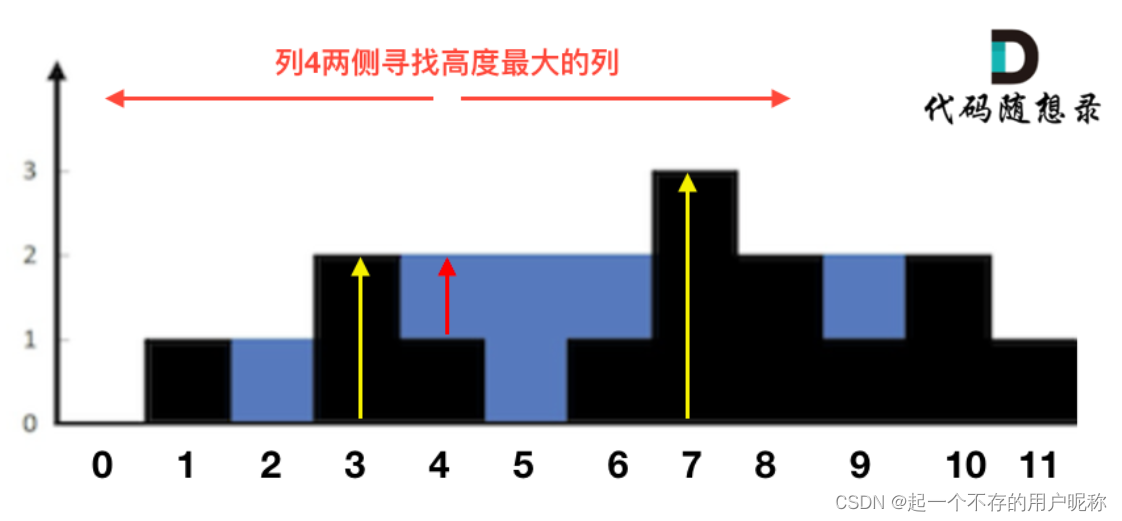
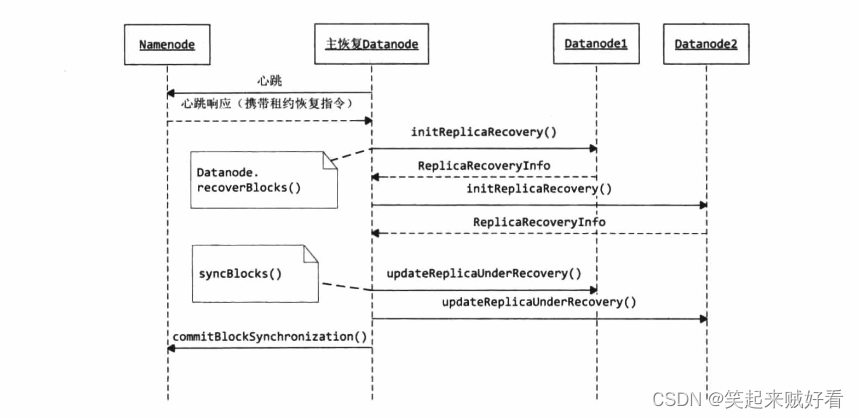
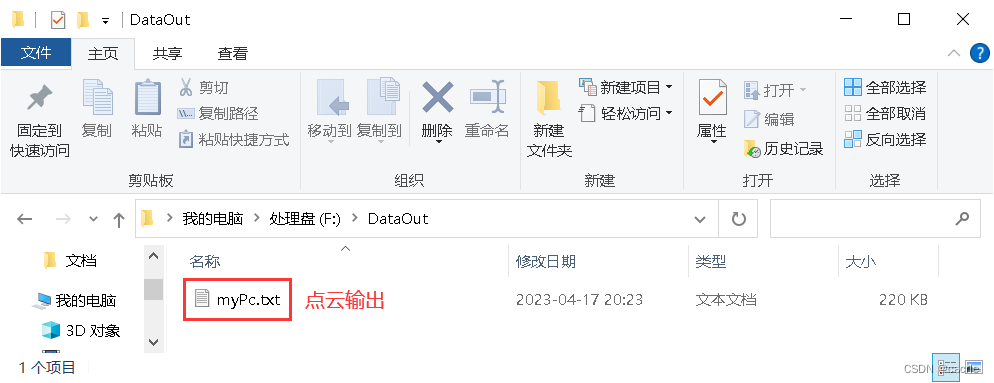
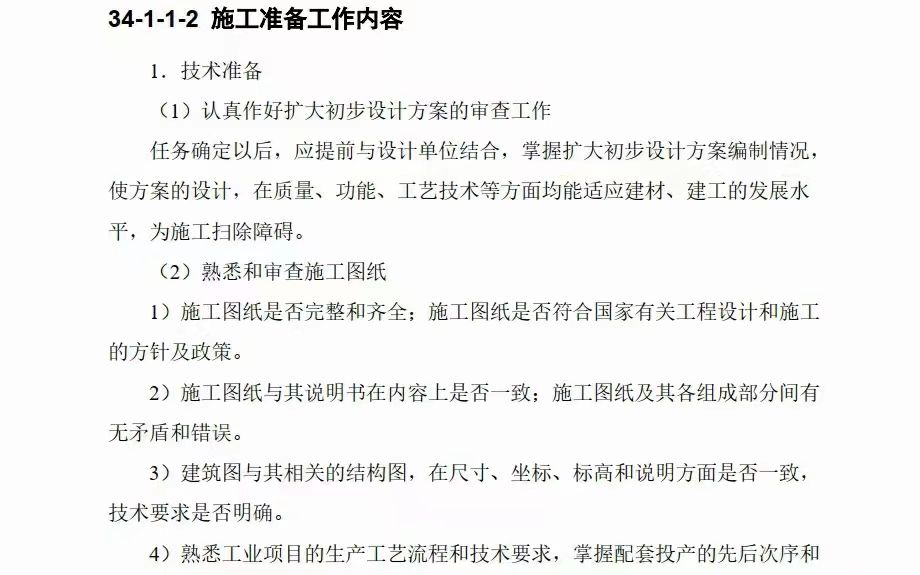
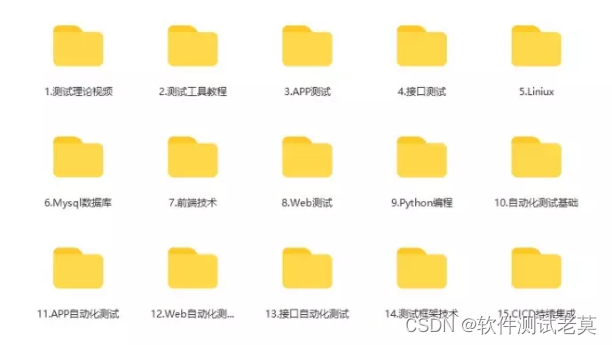
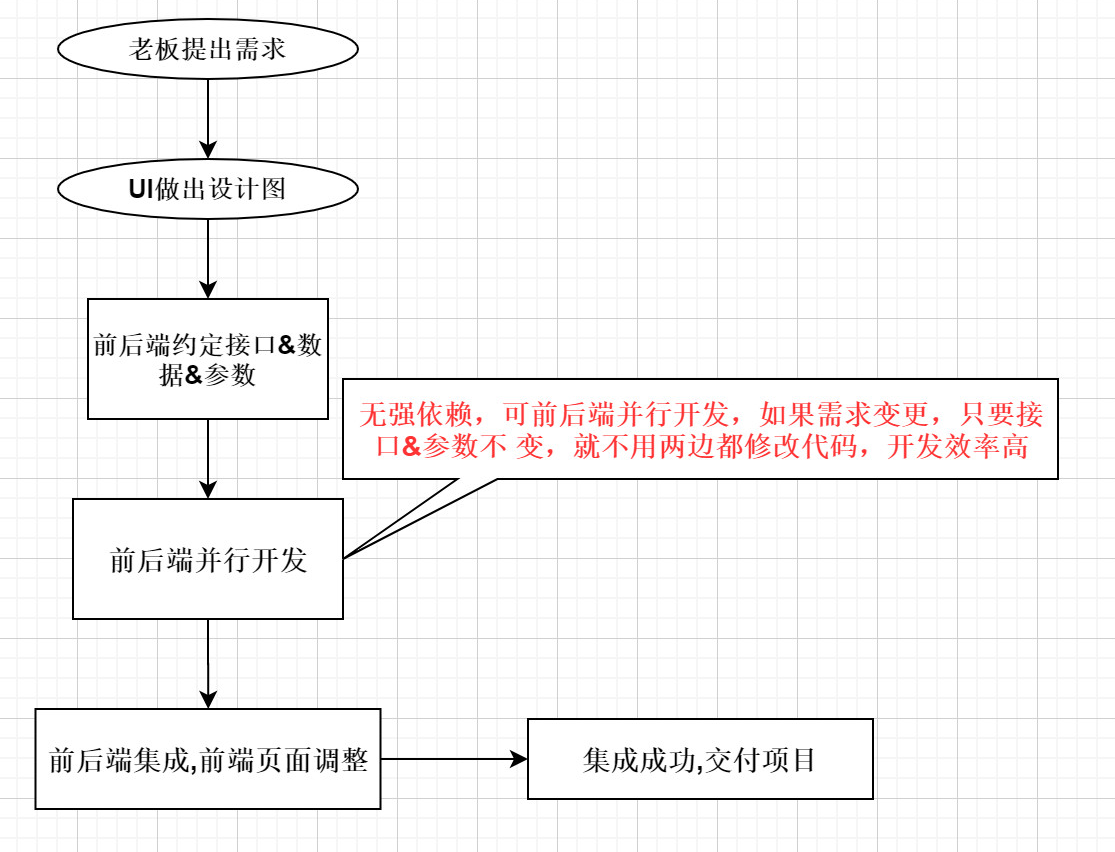
![[Netty] FastThreadLocal (十四)](https://img-blog.csdnimg.cn/9ea96678b6644e3081f149a58dd24392.png)
![[架构之路-159]-《软考-系统分析师》-10-系统分析-6-现有业务流程分析, 系统分析最核心的任务](https://img-blog.csdnimg.cn/e83cacd385c64fa5a7278e09ffd3b3b4.png)

